Mission
The Data Science Institute (DSI) at Columbia University advances the state-ofthe-art in data science; transforms all fields, professions, and sectors through the application of data science; and ensures the responsible use of data to benefit society.
We use the tagline “Data for Good” to summarize this mission to use data for the good of humanity and society and use data in a good manner, i.e., responsibly and ethically.
We train the next generation of data scientists, develop innovative technology, foster collaborations in advancing techniques to interpret data and address pressing societal problems, and work closely with industry to bring promising ideas to market.
Focus Areas
DSI has five focus areas: Business and Finance, Climate, Foundations of Data Science, Health Care, and Social Justice.
• A focus on Business and Finance recognizes the importance of this sector in New York City and Columbia’s leading expertise in this area across Arts and Sciences, Business, and Engineering.
• A focus in Climate recognizes the explosion of data generated by scientific devices and instrumentation, and the opportunity to push not only data-driven climate science, but also data-driven climate policy and law.
• Foundations of Data Science represents the interests of a large fraction of DSI members and affiliates and supports the first part of DSI’s mission statement: to advance the state-of-the-art in data science.
• A focus in Health Care recognizes the unbounded growth of data generated in biology, health, medicine, and neuroscience from the protein-level to the population-level and the opportunity provided by Columbia’s excellent medical center to use more advanced data science methods.
• Social Justice represents both the need to address fairness, responsibility, and ethics in the use of data science tools that are used to make decisions about people and the lack of diversity in the data science community.
Research
Research Centers and Working Groups
The institute’s centers and working groups enable the institute to reach across the university and tap into grassroots interests of its 360+ faculty members and affiliates. There are eight centers and three working groups.
COMPUTATIONAL SOCIAL SCIENCE
This working group explores both the impact of the digitization of data in the humanities and social sciences and the impact of societal concerns in the design and use of digital technology. The ability to collect automatically and in real-time internet-scale amounts of data about people and their interactions is transformative for economics, history, linguistics, political science, sociology and more.
COMPUTING SYSTEMS FOR DATA-DRIVEN SCIENCE
This center focuses on exploring new computational processors and high-performance systems needed to support the volume and variety of data produced by science domains, including astronomy, biology, chemistry, earth and environmental sciences, neuroscience, oceanography, and physics. On the computing side, it studies massively-parallel processors, energy-efficient hardware systems, distributed computing, software and databases. On the science side, it studies how to process, store, retrieve, analyze and understand massive data sets, where computation, communication, and storage breakthroughs are essential.

CYBERSECURITY
This center focuses on how to keep data, data models, and data-intensive systems secure and private throughout their life cycle. It looks at issues such as: data integrity and confidentiality; data sharing; data transparency; digital identity; and data regulation by government and industry. Taking advantage of e.g., cryptography and differential privacy, to policy, e.g., E.U. General Data Protection Regulation (GDPR), to law, e.g., Health Insurance Portability and Accountability Act (HIPAA).
DATA, MEDIA, AND SOCIETY
Using data generated by and about people, this center studies the ways in which we can use data to understand human behavior, society, and culture. It addresses questions about how data and data analysis are shaping how we work, how we live, and what it means to be a person in a networked, digitized world. It also supports how to design and build new tools, with user-friendly interfaces and visualizations, to enable end users to see the salient patterns in data and to help decision-makers make sense of their data.
EDUCATION
This working group’s goal is to build a community for creative research on pedagogies and curriculum development for data science education. Group members discuss, identify, and develop resources, curriculum examples, and innovative pedagogies as research on data science education for improving overall capacity in teaching data literacy, data ethics, empirical reasoning skills, advanced computational, and data-driven research skills.
FINANCIAL AND BUSINESS ANALYTICS
This center develops analytical and computational tools to manage risk and to support decisions using the growing volume and variety of data available in the corporate world. Its research thrusts currently include: systemic risks in financial systems and other interdependent critical infrastructures, insurance risk and natural disasters, risk hedging and mitigation for global supply chains, economic fluctuations and uncertainty, consumer/marketing analytics, supply chain analytics, analytics for health care delivery, and analytic entrepreneurship.
FOUNDATIONS OF DATA SCIENCE
This center focuses on formal and mathematical models for data analysis, as well as on issues concerning the engineering of large-scale data analysis systems. Models draw from the convergence of artificial intelligence, computation, machine learning, operations research, and statistics. Hard problems his center addresses include: how to do massively scalable inference; how to do principled and reliable inference in the presence of ever-growing datasets; how to analyze and prove properties of practical heuristics, e.g., deep learning; and how to infer causality, not just find correlations.
Excerpt from A Cryptographic Approach to Defending Against Test-Time Adversarial Examples

HEALTH ANALYTICS
This center focuses on improving the health of individuals and the health care system through data-driven methods and understanding of health processes. It studies many dimensions: from the individual to community to the population level; from genomic information to electronic health records to exposomic information; data collected from novel sensors, mobile phones, and sophisticated scientific instruments; from the privacy to the ethical concerns about data; from laboratory research to clinical practice.
MATERIALS DISCOVERY ANALYTICS
This working group focuses on the emerging field of materials genomics. It develops modeling concepts, tools, techniques and systems to integrate and leverage data science methods with fundamental physics and chemistry to speed up the discovery of novel materials.
SENSE, COLLECT AND MOVE DATA
This center focuses on the physical aspects of sensing, generating, collecting, storing, transporting, and processing large data sets. Sensing data includes research on novel sensors and sensing modalities, ranging from new materials to new sensing devices and systems; moving data includes advances in models, protocols, architectures and technologies for data centers and networks in many scales and modalities; and collecting data includes technology to connect sensors to data.
SMART CITIES
This center focuses on how to develop, monitor, and improve infrastructure, buildings, transportation routes, the power supply, and everyday activities in crowded, urban environments. Its research detects and counteracts problems with aging urban infrastructure, improves smart grid technology, calculates and communicates optimal transportation routes under congested traffic conditions, and deploys ubiquitous sensing devices.

Research Scientists
DSI interprets “research scientists” broadly in order to include non-traditional types of academics, including:
• Researchers who advance the frontiers of data science through foundational research contributions. These researchers lead their own research agenda by participating in, organizing, and managing independent research initiatives.
• Researchers who are “bilingual” experts in both data science and a specific domain, and drive an independent research agenda at the intersection of both.
• Experts in data science specifically focused on “translating” state-of-theart knowledge in data science and collaborating with domain experts to lead advances in both data science and domain disciplines. They work across domains and might be called an “applied data scientist” in industry.
• People who contribute to the computational and data infrastructure needs of data scientists to have broad and real-world impact, such as through opensource projects.
DSI views research scientists as comparable to tenure-track faculty in terms of the excellence of their contributions to the university and to the field of data science.
Ipek Ensari | Associate Research Scientist
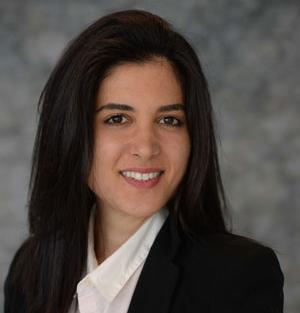
Ensari is co-Principal Investigator on the NIH-funded project “Data-Powered Personalized Exercise. Recommendations for Endometriosis Pain Management.” She also supports PhendoPHL, provides expertise in physical activity and data science, and participates in activities of the Precision in Symptom Self-Management (PriSSM) Center, including its Information Visualization Design Studio.
Kriste Krstovski | Associate Research Scientist in DSI and Associate Research Scholar in Business
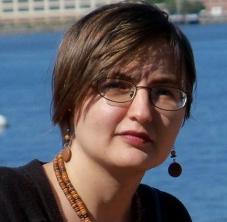
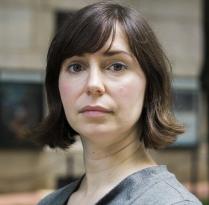
Krstovski works with researchers from DSI and Business to help them structure their research data, develop appropriate statistical models, and help identify students who can implement the models and run experiments.
Susan McGregor | Associate Research Scholar
McGregor works at the intersection of data science and media. She is co-Principal Investigator of the NSF collaborative award, “Cryptographic Provenance for Digital Publishing.” The project involves designing, testing, and implementing cryptographic tools to secure modern digital publication systems. She leads a team that will integrate cryptography with user interface design to create a prototype that accurately and verifiably conveys provenance and integrity guarantees.
Smaranda Muresan | Research Scientist
Muresan is co-Principal Investigator on awards funded by NIH and NSF and advises Ph.D. students and postdoctoral researchers in the area of natural language processing, specifically computational models of understanding language in context with applications to computational social science and education. She is an Amazon Scholar.
Zenna Tavares | Associate Research Scientist
Tavares is jointly appointed with the Zuckerman Institute and focuses on research related to computational cognitive science aimed at better understanding the principles governing human reasoning, learning and knowledge. He has expertise in causal inference and probabilistic programming.
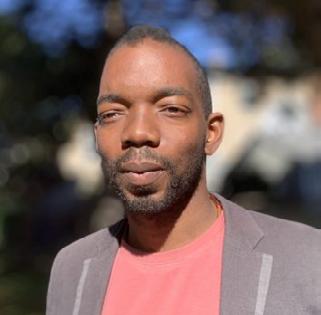
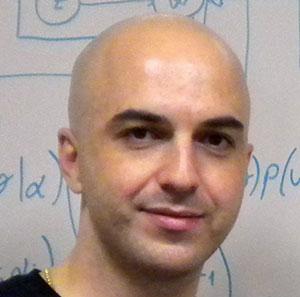
Postdoctoral Fellows
The DSI Postdoctoral Fellows program’s goals are not only to train the next generation of leaders in data science, but also to help define the field, given that data science is still evolving. This program looks for candidates from diverse disciplinary backgrounds with the expectation that the postdoctoral researchers will be co-mentored by a data scientist and a domain expert. To broaden participation in the postdoctoral program across Columbia, DSI has partnered with Cancer Dynamics, the Center on Poverty and Social Policy, Department of Psychiatry, the Neuro Technology Center, Public Health, and the Zuckerman Institute. The institute also appoints postdoctoral researchers funded by DSI faculty members.
Arpit Agarwal | University of Pennsylvania, Computer and Information Science
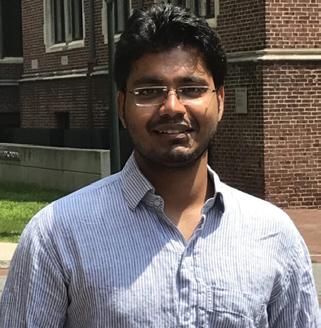
Agarwal is interested in the human decision-making process and its interaction with machine learning algorithms — how humans choose items based on recommendations, how can we learn from their behavior and recommend better items, and how do these recommendations influence their tastes in the long-term?
Faith Anderson | Dartmouth College, Molecular and Systems Biology
Anderson’s work is centered on the characterization of inflammatory and cellular death mechanisms in Parkinson’s disease. She continues her training in the identification and characterization of environmentally-triggered neurodegenerative disease processes.
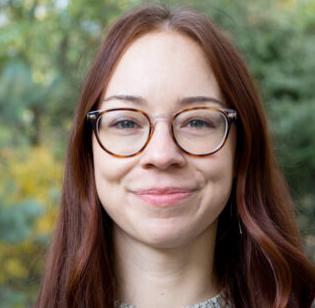
Christian Alexander Andersson Naesseth | Linköping University (Sweden), Electrical Engineering
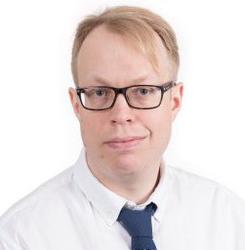
Andersson Naesseth focuses on approximate statistical inference, causality, representation learning, and artificial intelligence. He develops new algorithms, theories, and practical tools to help solve challenging problems in the field of data science.
Brielin Brown | University of California, Berkeley, Computer Science
Brown’s research lies at the intersection of machine learning and genomics. He is broadly interested in understanding how genetics and environmental factors change people’s cellular functions and lead to disease. He develops machine learning algorithms for modeling and inference in large-scale genomic studies.
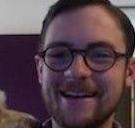
Meghan Bucher | University of Pittsburgh, Neuroscience
Bucher works at the intersection of environmental health and neuroscience. Specifically, she focuses on the “middle step” between exposure and disease—the mechanisms that occur after environmental exposure or genetic mutation that can lead to neurodegeneration and disease.
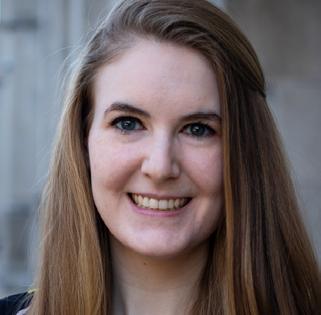
Craig Connolly | The University of Texas at Austin, Marine Science
Connolly provides effective solutions to combat the global threat of arsenic exposure by conducting interdisciplinary, transformative research that merges environmental chemistry and biogeochemistry, satellite remote-sensing and geospatial analysis, data science and machine learning, and public health.
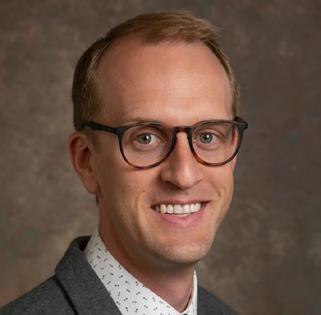
Kyle Davis | University of Virginia, Environmental Sciences
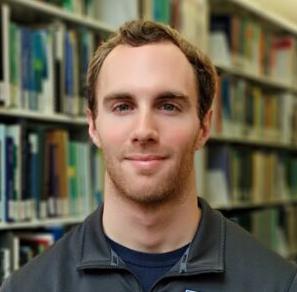
Davis combines environmental, economic, and social considerations with direct stakeholder engagement to inform agricultural decision-making and to improve nutrition, environmental sustainability, and climate adaptation strategies. He also explores the environmental and livelihood impacts of large-scale land investments, variability and shock propagation through food trade networks, the relationship between human migration and global environmental change, and farmer coping strategies for climate variability and extremes.
Caitlin Dreisbach | University of Virginia, Data Science
Dreisbach focuses on the co-creation of health care technologies with patients. As a former labor and delivery nurse, she is interested in reimagining the current state of fetal monitoring during labor and delivery and using data, in combination with the real-world experiences of women, to enhance the care provided at the bedside.
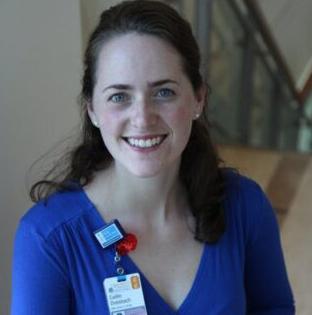
Christian Ka’ikekūponoaloha Dye | University of Hawai’i at Mānoa, Molecular Biosciences and Bioengineering
Dye explores the interface between environmental exposures and metabolic diseases, utilizing epigenetic information to develop novel biomarkers of disease risk. He seeks to elucidate the potential epigenetic mechanisms of disease pathogenesis and bridge his work with inclusive, community-based research among underrepresented populations, including Native Hawaiians and Pacific Islanders.
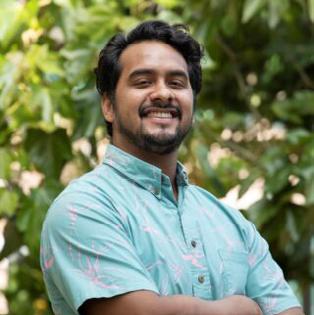
Ipek Ensari | University of Illinois at Urbana-Champaign, Kinesiology

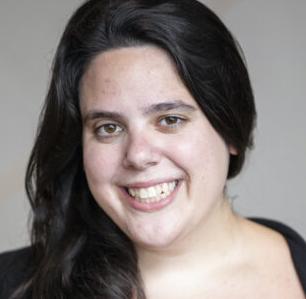
Ensari implements mobile health and machine learning techniques for patientgenerated health data (PGHD) to investigate disease characterization and patient symptom self-management. She investigates between-individual variability in chronic disease symptoms in response to self-management approaches; longitudinal, reciprocal fluctuations in disease symptoms to find the right point of intervention at the individual- and disease-level; and integration and summarization techniques for complex, temporal meaningful PGHD to improve their sense-making.
Kira Goldner | University of Washington, Computer Science and Engineering
Goldner’s research is in algorithmic mechanism design: designing algorithms that guarantee that the designer’s objectives are achieved, even when the data they run on is produced by individuals acting in their own self-interest. She studies social good questions in privacy and health care, revenue maximization problems, and understanding more complex behavioral and informational models.
Yinqiu He | University of Michigan, Statistics
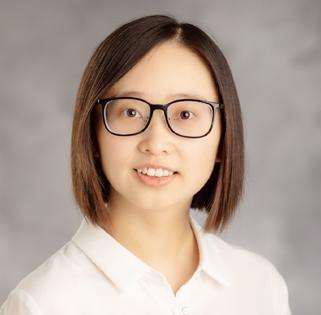
He develops theory and methodology to analyze large-scale and complexstructured data and address scientific problems arising from interdisciplinary studies. Her interests include high-dimensional and large-scale statistical inference, rare-event simulation, mediation pathway analysis, network analysis, statistical machine learning, and applications in statistical genetics and genomics and metabolomics.
Aviv Landau | University of Haifa (Israel), Social Work
Landau is developing an AI system that assists in the identification of child abuse and neglect in hospitals to reduce racial bias in identifications and interventions of child abuse. He is also analyzing a dataset of social media photos of Black Chicago youth affiliated with local gangs to understand the meaning of friendship, grief, and social status through their posted photos and tweets to obtain a broader and new understanding of Black youth culture.
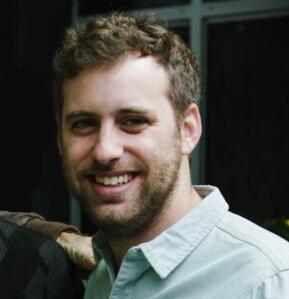
Abraham Liddell | Vanderbilt University, History
Liddell applies data-driven methods to examine the social networks of free and enslaved Africans and their descendants in the early modern Atlantic world and maps observed social changes in their communities onto local and global historical events. A large part of his interest lies in developing ways to extract, transform, and analyze historical data to generate more precise insights into the historical past.
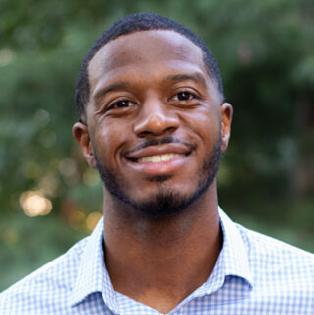
Jackson Loper | Brown University, Applied Mathematics
Loper produces analytical tools to understand datasets arising from new single cell experimental methods, which yield measurements for tens of thousands of features of a single cell. In which ways is it possible—or impossible—to use these kinds of measurements to understand the diversity within cell populations?
Debmalya Mandal | Harvard University, Computer Science
Mandal researches the design of large-scale voting systems that aggregate individual preferences and focuses on verifying and ensuring the fairness of AI systems. His thesis focused on designing systems that can help people in different fields improve their ability to make informed data-driven decisions.
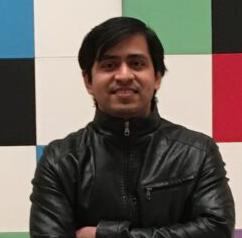
Andrew Miller | Harvard University, Computer Science
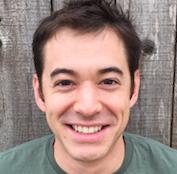
Miller formulates new algorithms, statistical methods, and machine learning models that may be used to improve medical science. His applied work ranges from problems in astronomy to health care and sports analytics.
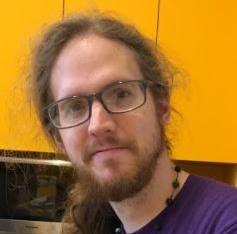
Gemma Moran | University of Pennsylvania, Statistics
Moran develops statistical methods to analyze high-dimensional data in the sciences. Her collaborative projects include analyzing CRISPR data to identify gene interaction effects, and predicting the formation of perovskites inexpensive materials with promising photovoltaic properties for solar cells.
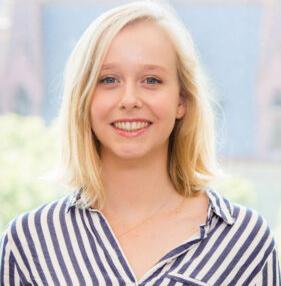
Sandrine Müller | Cambridge University (United Kingdom), Psychology
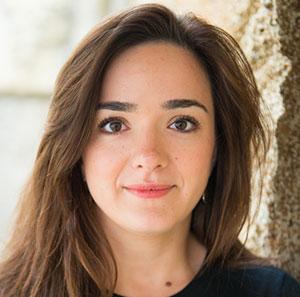
Müller uses smartphone sensor data to examine how mobility patterns (e.g., the places people visit, their daily routines, distance traveled, etc.) can inform our understanding of personality and mental health. Her research aims to provide a deeper theoretical understanding of these psychological phenomena, while fostering the development of personalized interventions to promote wellbeing.
Annie Nigra | Columbia University, Environmental Health Sciences
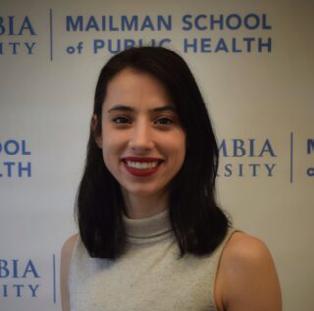
Nigra focuses on understanding the relationship between metal exposures (arsenic, mercury, lead, etc.) and related chronic disease, and on assessing population-level metal exposures using both biological and environmental monitoring. She evaluates federal regulations intended to reduce metal exposures and related adverse health outcomes.
Adèle H. Ribeiro | University of São Paulo (Brazil), Computer Science
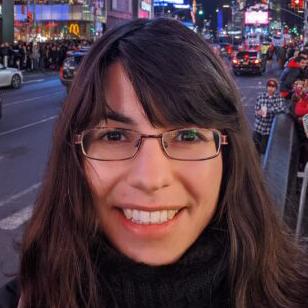
Ribeiro explores different topics at the intersection of computer science, statistics, and artificial intelligence in health care, including causal inference and learning, deep generative and discriminative models, statistical genetics and neuroscience, and multi-omics analysis. She is particularly interested in the emergent field of causal health sciences, which focuses on discovering, integrating, generalizing, and personalizing causal findings by taking advantage of the vast, but imperfect and heterogeneous, amounts of observational and experimental data available.
Alexander Root | Cornell University, Systems Biology
Root investigates human biology and ancient organisms like cyanobacteria. His work includes zooming in on structures and functions of their molecules and zooming out to see their evolution. He has developed technology to measure genes, cells, and individuals, alongside models to predict their behavior.
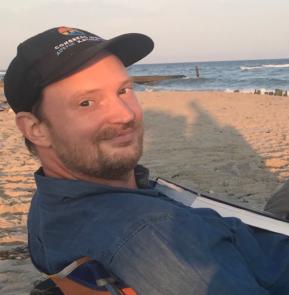
Aaron Schein | University of Massachusetts Amherst, Computational Social Science
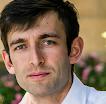
Schein uses statistical models to understand and predict factors that drive voter turnout in U.S. political elections. He measures causal effects of friend-to-friend voter mobilization efforts through large-scale digital field experiments and partners with a voter mobilization app and a polling company to use modern data science to answer questions in political science.
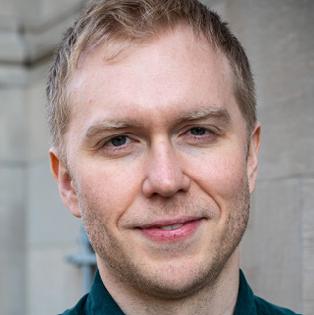
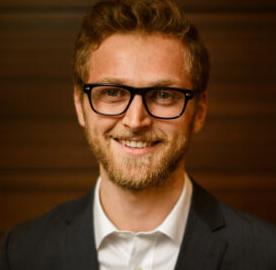
Yevgeny Rakita Shlafstein | Weizmann Institute of Science (Israel), Materials and Interfaces
Rakita Shlafstein researches data harvesting during chemical synthesis using an approach known as MOSY, or movement motivated synthesis. His goal is to harvest the entire history of a chemical reaction and create a “global intuition” that is based on every experiment (successful and failed ones) relating to the process and property of materials.
Andrew Sonta | Stanford University, Civil Engineering
Sonta works on data-driven modeling, analysis, and design techniques for the improvement of social and environmental goals in the built environment. His work spans data science, engineering, design, and social science and aims to address urban sustainability challenges through a multidisciplinary lens.
Miranda Spratlen | Johns Hopkins University, Environmental Health and Engineering
Spratlen uses metabolomics analyses in infants and children as both biomarkers of exposure and disease and to provide insight on potential pathophysiological mechanisms between early life environmental exposures and subsequent health outcomes. She is focused on effects of prenatal environmental exposures resulting from the World Trade Center disaster.
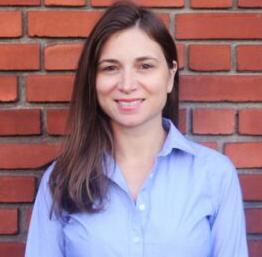
Emily Spratt | Princeton University, Art and Archaeology
Spratt investigates the development of AI-enhanced technologies for the analysis, generation, and curation of art and architecture, the ethics surrounding this subject, and the philosophical and legal implications of the use of digital images.
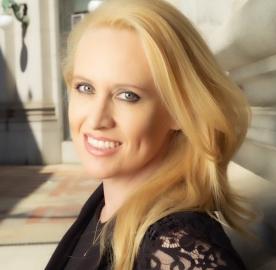
Dhanya Sridhar | University of California, Santa Cruz, Computer Science
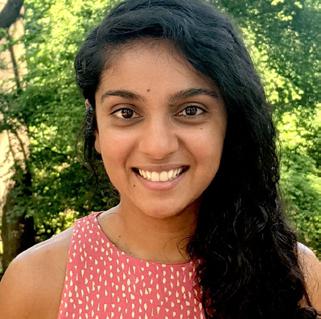
Sridhar uses text and network data and adapts probabilistic models and deep learning methods to find causality. She applies causal inference in various ways, such as studying how language affects persuasion or political outcomes, how influence spreads in social networks, and whether algorithmic decisions learned from historical data are fair.
Christopher Tosh | University of California, San Diego, Computer Science
Tosh studies theoretical machine learning and derives rigorous guarantees for learning algorithms and representations. His interests include the representational capabilities of fly olfaction, the design of automated experimentation algorithms for cancer drug discovery, and the underlying structure of modern artificial neuralnetwork representations.
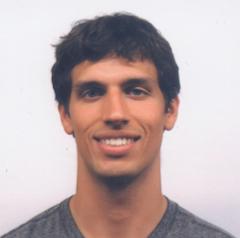
Rami Vanguri | University of Pennsylvania, Physics
Vanguri focuses on the usage of novel machine learning techniques in combination with large observational datasets to further the understanding of biological interactions. His work includes searching for rare variants responsible for adverse drug reactions and disease subtypes and the utilization of high performance computing with clinical data.
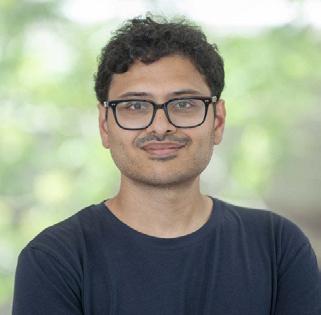
Mingzhang Yin | The University of Texas at Austin, Statistics
Yin is interested in the dependence structures underlying different data structures, such as samples, variables and functions. He is exploring the interface of machine learning and causal inference methods and hopes to apply data science to help understand the causal mechanism and treatment effect of cancer.
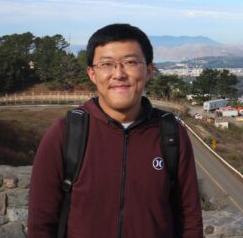
Isabelle Zaugg | American University, Communication
Zaugg studies language and culture, media, and digital technologies in the public sphere. She investigates the relationship between gaps in support for digitallydisadvantaged languages and patterns of mass extinction of language diversity. Her primary focus has been the digital history and online vitality of the East African languages that utilize the Ethiopic script.
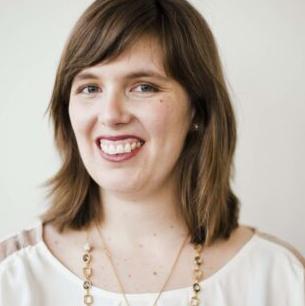
“Big” Research Projects
DSI catalyzes and houses large-scale multidisciplinary collaborative efforts. These projects are deemed “big” for one or more reasons: number of participants, breadth and depth of reach into a larger community, level of funding, number of years of funding, or expected long-term impact.
Observational Health Data Sciences and Informatics (OHDSI)
Founded in 2014, the Observational Health Data Sciences and Informatics (OHDSI, pronounced “Odyssey”) initiative is a multi-stakeholder, interdisciplinary, open-science community that collaborates to bring out the value of health data through large-scale analytics. OHDSI generates reliable and reproducible real-world evidence to promote better health decisions and better care in a variety of health care issues. OHDSI’s effort involves 30 countries, 800 researchers, 150 data sets, and electronic health records on 600 million unique patients. Because all records are in the same format, queries over this data collection enable population-level estimating, patient-level prediction, and new analytic methods, tools, and models for clinical research.
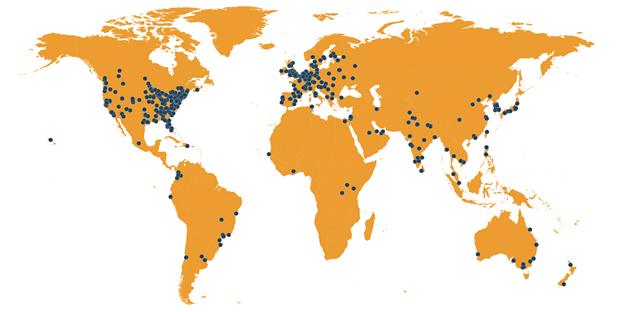
COSMOS
COSMOS (Cloud-enhanced Open Software-defined MObile wireless testbed for city-Scale deployment) is a beyond-5G, city-scale testbed being deployed in West Harlem since 2018 by Columbia, Rutgers University, and New York University in partnership with New York City, Silicon Harlem, City College of New York, IBM, and University of Arizona. COSMOS is one of the first two testbeds awarded as part of the NSF Platforms for Advanced Wireless Research program and includes a first-of-its-kind Federal Communications Commission Innovation Zone. The COSMOS project focuses on the design and deployment of an advanced wireless testbed that will support real-world experimentation on next-generation wireless technologies and applications. COSMOS also established a summer program for teachers, most from schools that serve students from populations underrepresented in STEM.
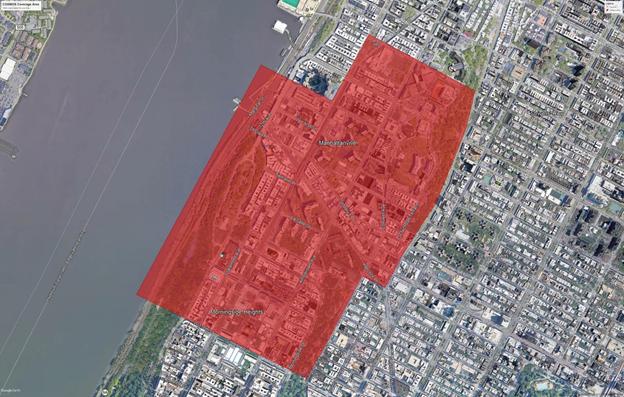
Northeast Big Data Innovation Hub
In 2015, NSF established a national network of Big Data Regional Innovation Hubs to help address some of the nation’s most pressing research and development challenges in extracting knowledge and insights from large, complex collections of digital data. Columbia was selected as the lead institution for the Northeast Big Data Innovation Hub, with its headquarters in DSI. The hub is a community convener and enabler for data science collaboration, research, education, and innovation in the region. It builds and strengthens partnerships across academia, industry, nonprofits, and government to address societal and scientific challenges in the community and to spur economic development in data science.
SCRIPTS
SCRIPTS (System for CRoss-language Information Processing, Translation, and Summarization) is a project funded under the IARPA MATERIAL program to develop a system for finding text, audio, and video files in any foreign language along with an accompanying summary in English given a search query. The system is geared toward low-resource languages, which lack large-scale data collections and automatic tools to enable automatic translators. SCRIPTS’ cross-language information retrieval module determines relevant documents and its summarization module generates textual summaries for each document to help a human assess document relevance. The SCRIPTS team includes 13 faculty and senior researchers at Columbia, University of Maryland at College Park, Yale University, University of Cambridge, and University of Edinburgh.
TRIPODS
TRIPODS (Transdisciplinary Research In Principles Of Data Science) is an NSF program that aims to bring together the statistics, mathematics, and theoretical computer science communities to develop the theoretical foundations of data science through integrated research and training activities. One of the major research themes of the Columbia TRIPODS institute has been the development of new theoretical and algorithmic results for deep learning. A second major research theme is to develop and analyze algorithmic primitives for efficient learning.
Seed Funds
The DSI Seed Funds program aims to advance research that combines data science expertise with domain expertise. It supports new collaborations aimed at longterm and deep relationships among faculty in different disciplines across campus. The expectation is that these collaborations will lead to larger grant proposals for Columbia.
PI PRIMARY AFFILIATIONS
Engineering - 37% Zuckerman Insitute - 7%
Arts and Sciences - 19%
Nursing - 11%
CUIMC - 7%
Public Health - 7%
Barnard - 4%
Climate School / Lamont-Doherty - 4%
Law - 4%
PROJECTS SUPPORTED BY THE DSI SEED FUNDS PROGRAM
Harnessing Big Data and ML to Learn Optimal, Individualized Dynamic Treatment Rules to Prevent Opioid Use and Recovery Relapse
Sean Luo (Physicians and Surgeons, Psychiatry), Min Qian (Public Health, Biostatistics), Kara Rudolph (Public Health, Epidemiology)
Pharmacologic treatment of opioid use disorder is complicated by the likely absence of a one-sizefits-all best approach; rather, “optimal” dose and dose adjustment are hypothesized to depend on person-level factors, including factors that change over time, reflecting how well the individual is responding to treatment. This team will use harmonized data from multiple existing clinical trials with natural variability in medication dose adjustments over time to 1) learn optimal dosing strategies, and 2) estimate the extent to which such optimal dosing strategies could reduce risk of treatment dropout and relapse.
Estimated marginal risks of relapse by 12 weeks of treatment and average treatment effects (with 95% confidence intervals), comparing dosing strategies d \in {d1 = increase dose in response to opioid use; d2 = increase dose to a minimum of 16mg, d3 = increase to 16mg and then increase in response to use thereafter} to the reference of constant dose (d4), among patients randomized to treatment with buprenorphine-naloxone.
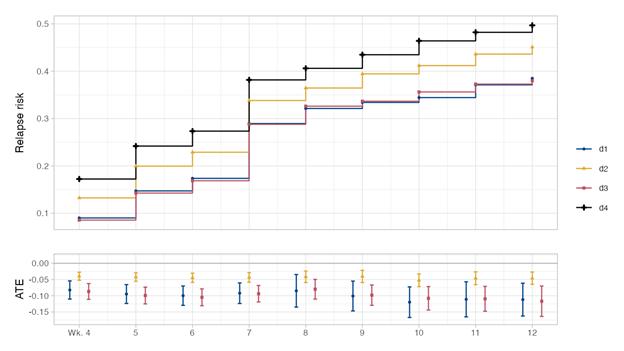
mHealth-Based Data Science Approach to Examine the Association of Minority Stressors with Sleep Health in Black and or Latinx Sexual and Gender Minority Adults
Billy Caceres (Nursing), Ipek Ensari (DSI), Kasey Jackman (Nursing)
This pilot study will use data science techniques to leverage ecological momentary assessment and consumer sleep technology to phenotype sleep health profiles in Black and Latinx sexual and gender minority adults. The investigators will use 30 days of daily electronic diaries and actigraphy to examine the associations of daily exposure to minority stressors (such as experiences of discrimination and anticipated discrimination) with sleep health among Black and Latinx sexual and gender minority adults.
Racial Politics and Sentiment on Twitter: The Dynamics of Online Emotional Language
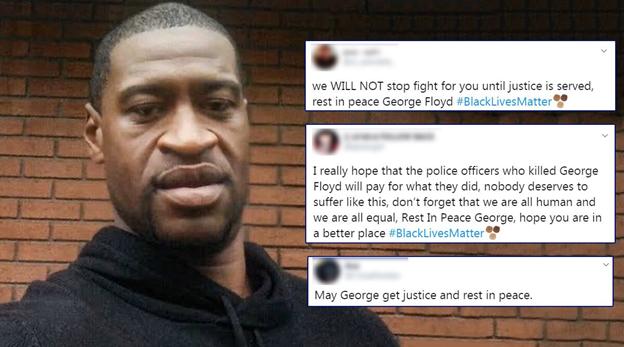
Colin Wayne Leach (Barnard, Psychology), Courtney Cogburn (Social Work), Sining Chen (Engineering, Industrial Engineering and Operations Research), Susan McGregor (DSI), Kathy McKeown (Engineering, Computer Science), Chris Wiggins (Engineering, Applied Physics and Applied Mathematics), Tian Zheng (Arts and Sciences, Statistics)
Social media is a powerful means of individual expression, and collective consolidation, of people’s sentiment about the most important issues in our society. This transdisciplinary project marries the latest advances in computational and statistical techniques of language use over time with social behavioral theories of emotion and stress to examine the temporal dynamics of tweets surrounding police killings of Black people and subsequent protests, e.g., Black Lives Matter.
Randomized Methods for High-Throughput Characterization of Tokamak Sensor Streams
James Anderson (Engineering, Electrical Engineering), Jeffrey Levesque (Engineering, Applied Physics and Applied Mathematics), Michael Mauel (Engineering, Applied Mathematics and Applied Physics)
Fusion science seeks to advance our fundamental understanding of physics and make plasma fusion viable for applications such as clean energy production. Tokamak fusion reactors generate vast and rich data sets obtained through multiple sensing modalities. The goal of this project is to develop new robust and efficient methods rooted in randomized numerical linear algebra for analyzing and characterizing complex fusion discharge dynamics.
AI-Assisted Indentification of Child Abuse and Neglect in Hospital Settings with Implications for Bias Reduction and Future Interventions

Aviv Landau (DSI), Desmond Patton (DSI and Social Work), Maxim Topaz (Nursing)
Child abuse and neglect is a social problem that has reached epidemic proportions. The broad adoption of electronic health records in clinical settings offers a new avenue for addressing this epidemic. This team will develop an innovative artificial intelligence system to detect and assess risk for child abuse and neglect within hospital settings that would prioritize the prevention and reduction of bias against Black and Latinx communities.
Developing machine learning-based models to help identify child abuse and neglect: key ethical challenges and recommended solutions and Considerations for Development of Child Abuse and Neglect Phenotype with Prioritizing Reduction of Racial Bias: A Qualitative Study were published by the Journal of the American Medical Informatics Association in 2022.
Data Driven Discovery of Latent Structure in Human Information Demand
Vincent Dorie (DSI), Jacqueline Gottlieb (Physicians and Surgeons, Neuroscience)
As information–and misinformation–become increasingly overwhelming, it is increasingly important to understand both how humans decide which sources of information to consult and how that choice relates to their decision-making strategies. In this project, online behavioral data will be collected from a large sample of participants, using a battery of tasks that probe different theories of how information is prioritized and used. This combined data set will allow an analysis of the latent factors that shape human-information demand while also unifying those theories. This unification can then be used to develop strategies to increase or decrease the frequency of information solicitations, for example helping people on the internet click their way to factual information, or helping those suffering from anxiety disorders to reduce uncontrollable ruminations.
Gender and Racial/Ethnic Inequality in High-Skilled Labor Market: Gaining New Insights from Online Resume and Reviews Database
Kriste Krstovksi (DSI and Business), Yao Lu (Arts and Sciences, Sociology)
This research team will combine new sources of labor market data, which include online resumes and employee reviews, with data science methods to identify factors and environments that shape gender and racial inequality in the high-skilled labor market. The team will 1) chart long-term career trajectories of a large number of high-skilled American workers and examine gender and racial variations; and 2) construct measures of company environment, especially that pertains to gender and racial equity, and assess its consequences for the career path of different groups of skilled workers.
Interpretable Microbiome Dynamics in Liver Transplant Recipients
Itsik Pe’er (Engineering, Computer Science), Anne-Catrin Uhlemann (Physicians and Surgeons, Medicine)
This project will develop methods for temporal analysis of gut microbiome compositions to better define the risk of infections in liver transplant recipients. The project team will integrate existing coarse resolution data with newly collected deep metagenomics and metabolomics data.
Detecting and Attributing Spatiotemporal Variations in Sources of Ground-Level Air Pollution with Modeling Testbed for Integrating Multiple Noisy Satellite Datasets
Ruth DeFries (Arts and Sciences, Ecology, Evolution and Environmental Biology), Arlene Fiore (Arts and Sciences, Earth and Environmental Sciences), Jeff Goldsmith (Public Health, Biostatistics), Marianthi-Anna Kioumourtzoglou (Public Health, Environmental Health Sciences), Daniel Westervelt (Earth Institute, Lamont-Doherty Earth Observatory), John Wright (Engineering, Electrical Engineering)
This project seeks to develop methods to extract patterns from multiple datasets and thereby identify the dominant sources of air pollution across India and how they vary in space and time. The proposed work is a step towards the overarching goal of informing effective clean air solutions and reducing public health burdens associated with exposure to air pollution in India.
(a) Improved predictive capability of PM2.5 estimates over India when adding trace gas columns (G) to aerosol optical depth (A) alongside other features (emissions and meteorology), regardless of which machine-learning model is used. Top-ranking features indicate PM2.5 variability is likely modulated by (b) secondary PM (SO2 and NO2 are precursor gasses to sulfate and nitrate aerosol, respectively) in Region E (northeastern India) and in (c) primary pollutants in Region W (northwestern India) as indicated by a strong correlation with CO.
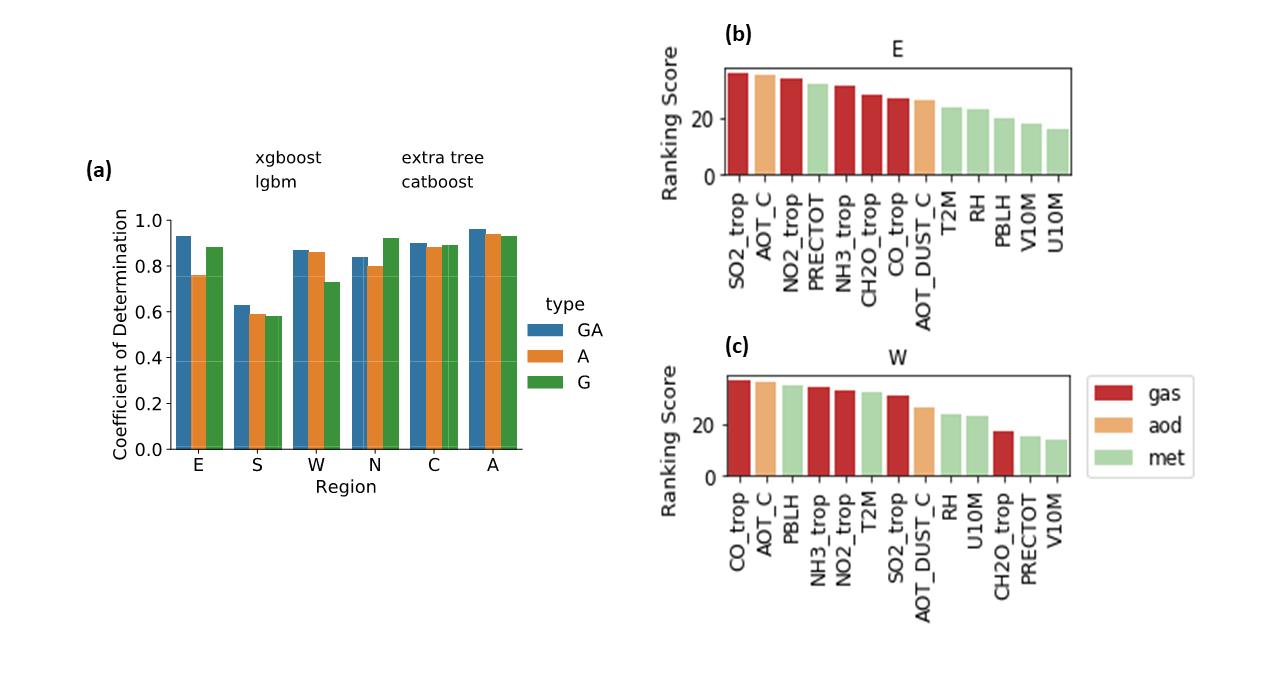
Modeling the Dynamics of Young Onset Colorectal Cancer Using Big Population Data
Piero Dalerba (Physicians and Surgeons, Pathology and Cell Biology), Jiahnhua Hu (Public Health, Biostatistics), Mary Beth Terry (Public Health, Epidemiology), Wan Yang (Public Health, Epidemiology)
Using multiple nationally representative large-scale exposure and cancer incidence datasets, this project will build a novel model-inference system to study the dynamics of colorectal cancer, test a range of risk mechanisms over the life course, and identify key risk factors underlying the recent increase in young onset colorectal cancer incidence in the United States to support more effective early prevention. This project is jointly funded with Cancer Dynamics.
Risk Factors over the Life Course
Intrinsic Factors: heredity, life cycles (growth, aging…)

q ν(t) ~ growth/aging?
q α0(t) ~ growth/aging?
q β0(t) ~ growth/aging?
q μ(t) ~ aging?
interaction?
Extrinsic Factors: environmental exposure, infections, lifestyle, diet…
q ν(t) ~ exposure?
q α0(t) ~ exposure?
q μ(t) ~ exposure?
This project models risk accumulation over the life course, combining mechanistic models and multiple risk factor and cancer outcome datasets. The top panel shows key research questions and parameters of interest; the bottom diagram shows an example of a model incorporating the related parameters (i.e. a two-stage clonal expansion model).
Machine Learning to the Rescue: Eliminating the Damage Caused by TseTse Fly in Sub-Saharan Africa
Szabolcs Marka (Arts and Sciences, Physics), Zsuzsanna Marka (Arts and Sciences, Physics), Zelda Moran (Columbia); John Wright (Engineering, Electrical Engineering)
Control of tsetse flies—the vector responsible for African Trypanosomiasis or sleeping sickness—is highly dependent on precise, high-volume, and cost-effective separation of tsetse genders. Enabling broad deployment Africa-wide, this team is pioneering machine learning-based robotic systems that use infrared imaging to peek inside tsetse pupae for early, robust, and fast identification of males to be used to suppress the wild tsetse population.
Probabilistic Modeling of Intercellular Interactions that Drive Ferroptosis Susceptibility of Therapy-Resistant Cancer Cells
Elham Azizi (Engineering, Biomedical Engineering and Cancer Dynamics), Jellert Gaublomme (Arts and Sciences, Biological Sciences), Brent Stockwell (Arts and Sciences, Biological Sciences)
This project will leverage machine learning techniques to combine two types of single-cell data modalities with the goal of achieving a more comprehensive characterization of heterogeneous cell states in the tumor microenvironment. Specifically, the team will develop probabilistic models to elucidate the role of intercellular interactions in driving susceptibility of treatment-resistant mesenchymal tumor cells to a newly discovered ferroptotic vulnerability, which could offer a therapeutic avenue to prevent survival of these cancer cells that are prone to metastasis. This project is jointly funded with Cancer Dynamics.
Data-driven Modeling and Estimation of Li-Ion Battery Properties
Matthias Preindl (Engineering, Electrical Engineering), Alan West (Engineering, Chemical Engineering)
The PIs will generate experimental data by applying perturbation signals to Li-Ion battery cells and use this data to model and estimate a battery’s State of Charge (SoC) via deep learning. The project aims to significantly increase the estimation accuracy of key operational battery parameters that can for example be mapped into the remaining range of an electric vehicle or boat. The longer-term goal of this research is to make more accurate predictions of the lifetime of battery packs used in electrified transportation systems.
Molecular Mechanisms of Treatment-Resistant Depression: Towards Modeling Antidepressant Response and Predicting Treatment Efficiency
Sergey
Kalachikov(Engineering, Chemical Engineering), Rene Hen (Physicians and Surgeons, Neuroscience)
This team will incorporate data on antidepressant resistance and drug response profiles, their own behavioral and RNA sequence data, and publicly available large-scale data sets to help identify candidate genes that implicate specific morphological changes in the brain. The long-term aim of this research is to reveal specific gene pathways and regulatory networks associated with treatment-resistant Major Depressive Disorder.
Tracking Air Pollutants and Reconstructing 3D Scalar Fields from 2D Satellite Images via Machine Learning
Pierre Gentine (Engineering, Earth and Environmental Engineering), Marco Giometto (Engineering, Civil Engineering and Engineering Mechanics), Mostaf Momen (Engineering, Civil Engineering and Engineering Mechanics), Carl Vondrick (Engineering, Computer Science)
Satellite images are routinely used to track pollutant dispersion in the atmosphere, but the inherently two-dimensional information is limited and often impedes the development of effective rapid response plans. This project will develop a machine learning model to predict the three-dimensional structure of pollutant concentrations from satellite images of the dispersion process. Machine learning will be combined with high-fidelity simulations of atmospheric turbulence to guide the development of a model to track scalar dispersion as well as a model to reconstruct the corresponding three-dimensional concentration field from two-dimensional satellite-like information.
Schematic of the framework for the reconstruction of a three-dimensional turbulent airflow and pollutant concentration field from a twodimensional satellite image thereof. The network is a modified variational autoencoder (center) architecture consisting of three-dimensional convolutional, pooling, and dense layers. The network input is a two-dimensional horizontal turbulent velocity and associated pollutant concentration field (upper left) and outputs the corresponding three-dimensional structure of these fields (upper right).
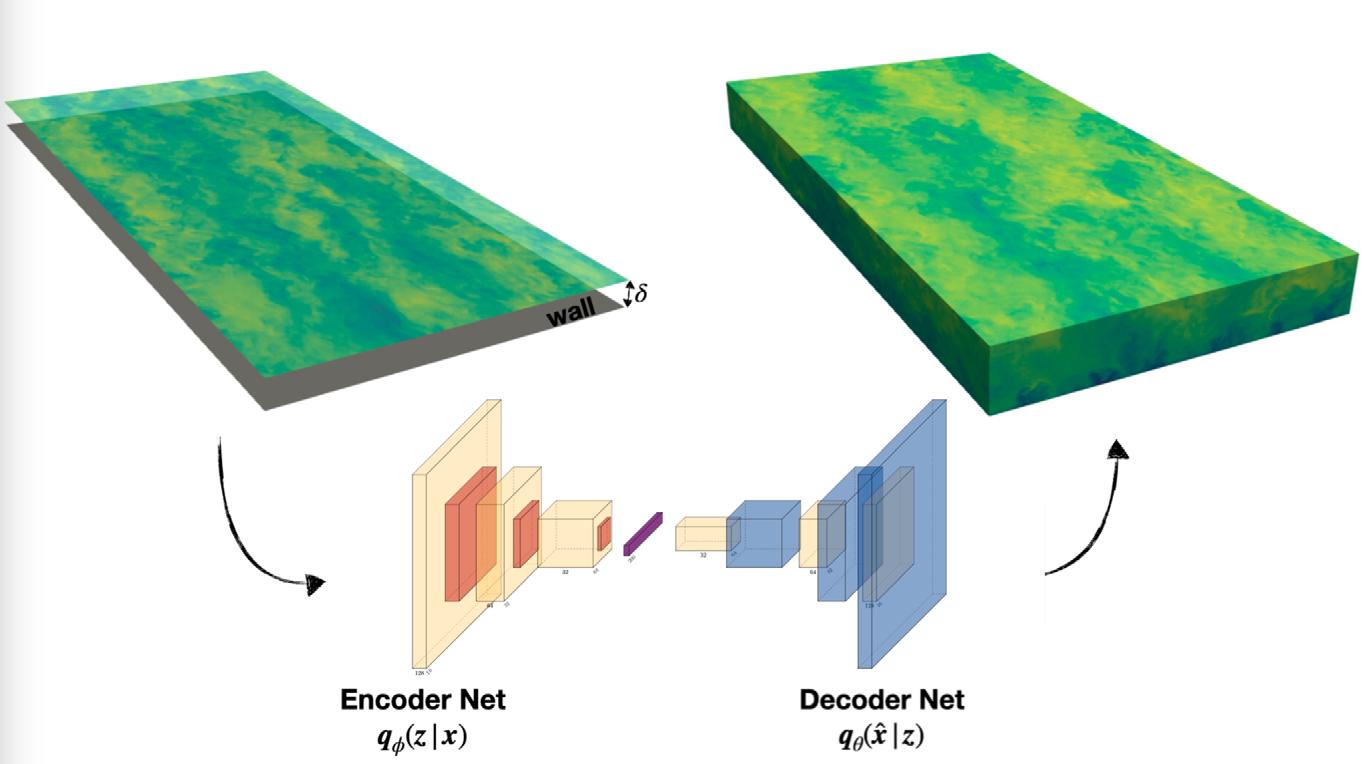
Nudging NY: Using Data Science to Increase Healthcare Access in Underserved Communities
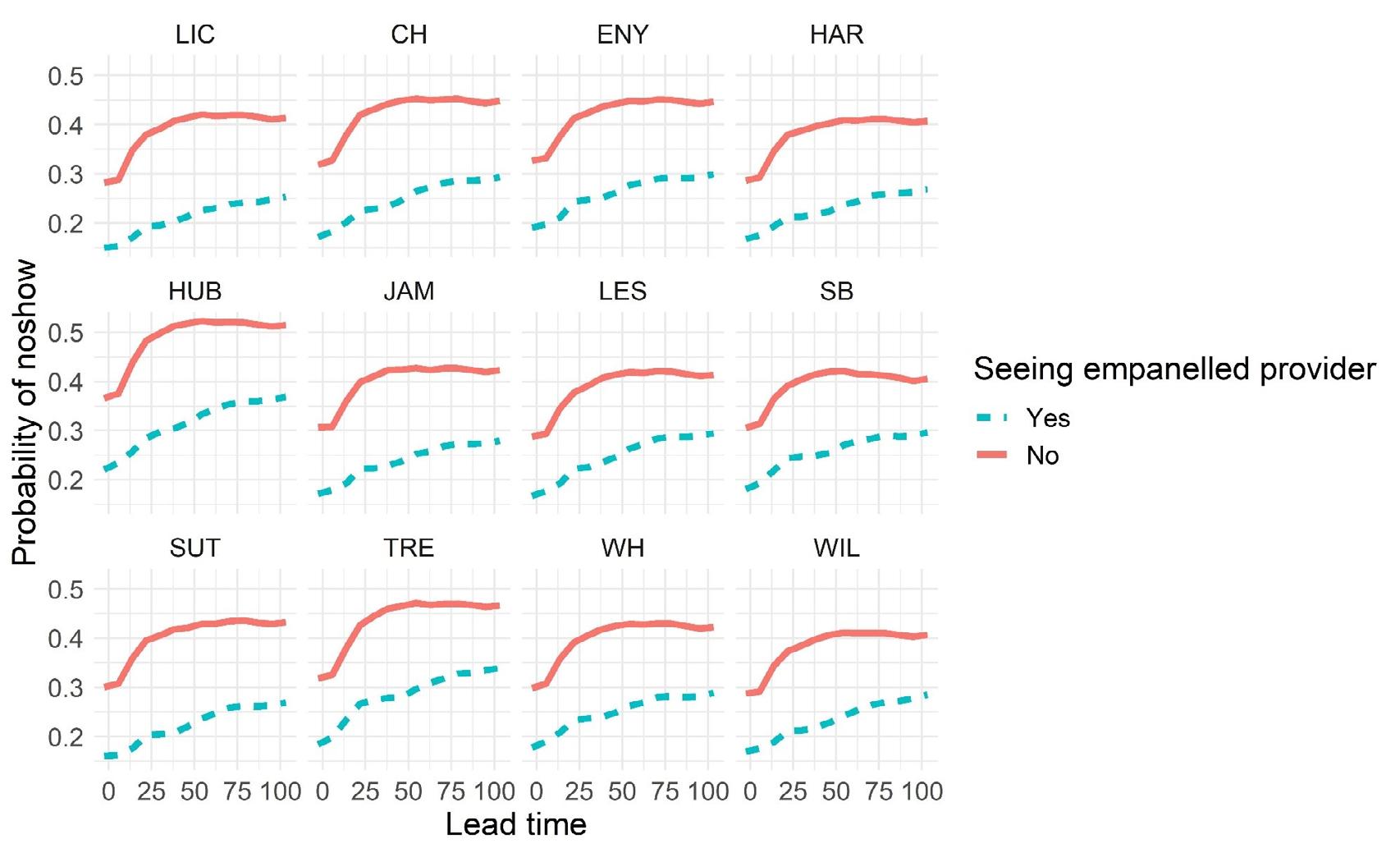
Marianthi-Anna Kioumourtzoglou (Public Health, Environmental Health Sciences), John Paisley (Engineering, Electrical Engineering), Kai Ruggeri (Public Health, Health Policy and Management)
Personalized approaches to behavioral interventions, known as nudges, may improve access to health care in low-income communities. Using health, environment, transportation, and financial data, this project will build smart nudges that adapt to individual needs by using innovative methods in machine learning and data science.
Patients from around a dozen clinics that were assigned to the same doctor for each visit were substantially more likely to attend their appointment than those that were assigned a doctor at random. Also, patients that were contacted to schedule an appointment only a short time before the visit were more likely to attend than those that were contacted far in advance (ideal window is under 10 days with steady decline up to around 30 days).
Enabling Small Data Medical Research with Private Transferable Knowledge from Big Data
Roxana Geambasu (Engineering, Computer Science), Daniel Hsu (Engineering, Computer Science), Nicholas Tatonetti (Physicians and Surgeons, Biomedical Informatics)
Today, virtually every clinic and hospital–small or large–collects clinical information about their patients and aims to use these data to predict disease trajectories and discover new treatments. Unfortunately, these datasets, which vary vastly in size and type of information they contain, are almost always siloed behind institutional walls because of privacy concerns. This limits the scope and rigor of the research that can be done on these datasets. We are building an infrastructure system for sharing privacy-preserving machine learning models of large-scale, dynamic, clinical datasets. The system will enable medical researchers in small clinics or pharmaceutical companies to incorporate multitask feature models learned from big clinical datasets, such as New York Presbyterian’s Clinical Data Warehouse, to bootstrap their own machine learning models on top of their (potentially much smaller) clinical datasets. The multitask feature models protect the privacy of individual records in the large datasets through a rigorous method called differential privacy. We anticipate the system will vastly improve the pace of innovation in clinical data research while alleviating the privacy concerns.
Using Machine Learning to Measure Racial/Ethnic Bias in Obstetric Settings
Veronica Barcelona (Nursing), Kenrick Cato (Nursing), Dena Goffman (Obstetrics and Gynecology)
Coretta Green (New York-Presbyterian), Anita Holman (Obstetrics and Gynecology), Janice James Aubey (Obstetrics and Gynecology), Bernadette Khan (New York-Presbyterian), Kenya Robinson (New York-Presbyterian), Maxim Topaz (Nursing)
This team will examine the association between linguistic bias and pregnancy-related morbidity among birthing people from 2017-2019 at two hospitals. They will use natural language processing approaches to: 1) identify stigmatizing language in clinical notes, 2) examine patterns of language use by race and ethnicity, and 3) study associations between language use and pregnancy-related morbidity.
Predicting Personalized Cancer Therapies Using Deep Probabilistic Modeling
David Blei (Arts and Sciences, Statistics; and Engineering, Computer Science), Anna Lasorella (Physicians and Surgeons, Pediatrics), Raul Rabadan (Physicians and Surgeons, Systems Biology), Wesley Tansey (Physicians and Surgeons, Systems Biology)
Precision medicine aims to find the right drug, for the right patient, at the right moment and at the right dose. This aim is particularly relevant in cancer, where standard therapies elicit very different responses across patients. This project’s goal is to model, predict, and target therapeutic sensitivity and resistance of cancer. The project will work to integrate Bayesian modeling with recently developed variational inference and deep learning methods, and apply them to large scale genomic and drug sensitivity data across many cancer types. The project will leverage the strong expertise of two leading teams in computational genomics and machine learning together with experimental labs across the Medical and Morningside campuses.
p(true): Distilling Truth by Community Rating of Claims on the Web
Jerde Trenton (Zuckerman Institute), Nikolaus Kriegeskorte (Zuckerman Institute), Nima Mesgarani (Engineering, Electrical Engineering), Chris Wiggins (Engineering, Applied Physics and Applied Mathematics)
The social web is driven by feedback mechanisms (“likes”) that emotionalize the sharing culture and may contribute to the formation of echo chambers and political polarization. In the p(true) project, we will build a complementary mechanism for web-based sharing of reasoned judgments, so as to perform probabilistic inference on contentious claims with machine learning algorithms and bring rationality to the social web.
Planetary Linguistics
Michael Collins (Engineering, Computer Science), David Kipping (Arts and Sciences, Astronomy)
Using the thousands of extrasolar planets discovered in recent years, can we infer the rules by which planetary systems emerge and evolve? The situation resembles trying to learn an unknown language from snippets of conversation. Leaning into this analogy, we will explore whether the mathematical tools of computational linguistics can reveal the “grammatical” rules of planet formation. Overarching goals will be 1) to build predictive models, much like predictive text on a smartphone, capable of intelligently optimizing telescope resources 2) uncover the rules and regularities in planetary systems, specifically through the application of grammar induction methods used in computational linguistics. In short, we aim to speak planet.
A schematic diagram of the machine learning approach used to classify planetary systems adapted from the part-of-speech tagger (Stratos 2019).
Application of Gaussian Mixture Regression to Obtain Useful, Actionable Air Pollution Data from Consumer-Grade, Low-Cost Monitoring Devices
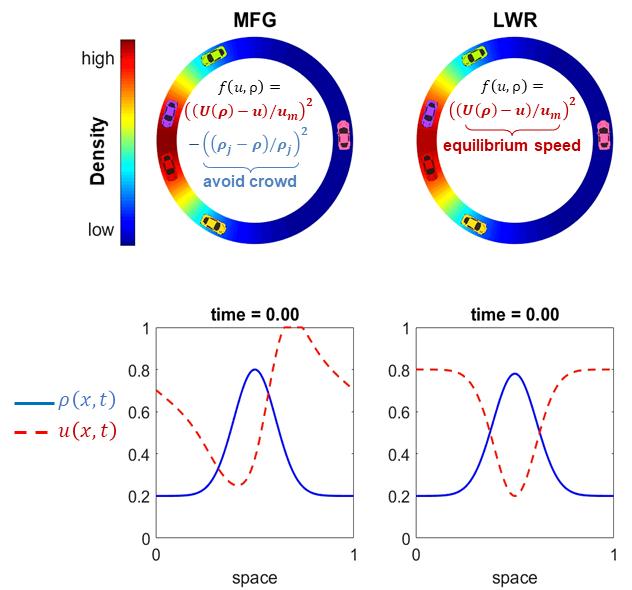
Xiaofan (Fred) Jiang (Engineering, Electrical Engineering), Daniel Westervelt (Lamont-Doherty Earth Observatory)
This team will develop and apply a novel, globally applicable, bias correction algorithm to a fastgrowing global network of consumer grade, low-cost air quality sensors. This method will allow users to obtain high-quality data from raw, unvalidated sensor data, thereby empowering communities to better understand their air pollution exposure and take action.
A Game-Theoretical Framework for Modeling Strategic Interactions Between Autonomous and Human-Driven Vehicles
Xi Chen (Engineering, Computer Science), Xuan (Sharon) Di (Engineering, Civil Engineering and Engineering Mechanics), Qiang Du (Engineering, Applied Physics and Applied Mathematics), Eric Talley (Law)
Increasing numbers of vehicles will drive themselves and these will be connected to surrounding vehicles and the built environment. Changes arise when autonomous and/or connected vehicles (AV) and conventional human-driven vehicles (HV) will coexist and interact in the next decade and beyond. This project plans to develop a fundamental framework using the game theoretic approach to model the strategic interactions of HVs and AVs. Other than technical advances, this project will also address the Trolley Problem (i.e., ethical sense development) in AV algorithm design.
Racial Inequality in Police Violence: Injuries and Fatalities from Police Use of Force
Jeffrey A. Fagan (Law and Public Health), Rajiv Sethi (Barnard, Economics), Elizabeth Ananat (Barnard, Economics), Morgan C. Williams, Jr. (Barnard, Economics), Brendan O’Flaherty (Arts and Sciences, Economics), José Luis Montiel Olea (Arts and Sciences, Economics)
This project will create a data archive on non-fatal injuries and fatalities from police encounters—data that may be harmonized and integrated with other increasingly detailed datasets on police killings— and provide estimates of a continuum of police use of force. The new database will provide capacity and research opportunities for departments, schools, laboratories, and students across the university on an urgent public policy issue.
Positioning Energy Storage Technologies with Stochastic Climate Scenarios
Upmanu Lall (Engineering, Earth and Environmental Engineering), Bolun Xu (Engineering, Earth and Environmental Engineering)
This project combines data-driven renewable energy simulations with model-based storage pricing models to quantify the financial value of various energy storage technologies in integrating renewables and mitigating climate change in a decarbonizing electric power system.
Using Data Science and Causal Inference to Estimate the Community-Level Impact of Police Behavior on Psychological Distress: The Case of No-Knock Search Warrants in Chicago
Gerard Torrats-Espinosa (Arts and Sciences, Sociology), Kara Rudolph (Public Health)
This team proposes to create a novel linkage of police administrative records that capture highly detailed information on all search warrants that the Chicago Police Department executed from 2012 to 2020. They will document spatial and temporal patterns of search warrant use across Chicago’s neighborhoods.
Psychology, Organizational Behavior and Neuroscience Literatures: Harnessing Data Science to Unify DEI Findings in Academic Literature and the Popular Press
Valerie Purdie-Greenaway (Arts and Sciences, Psychology), Alfredo Spagna (Arts and Sciences, Psychology), Peter Bearman (Arts and Sciences, Sociology), Jennifer Manly (Medicine, Neurology), Smaranda Muresan (DSI and Engineering, Computer Science)
This team will develop a shared understanding of how diversity and inclusion (D&I) is conceptualized and studied in the academic literature and compare academic research on D&I to what is found in popular press outlets. The project will draw from social psychology, organizational behavior, and social-cognitive neuroscience to create a baseline for understanding the structure of scientific knowledge related to D&I and to understand what kinds of D&I research finds its way into the popular press.
Education
Education Programs
DSI prepares the next generation to be savvy in data science, ranging from learning the relevant data science skills for their disciplines and careers, to learning what data science is and how it will affect their future, and to gaining an appreciation for how data science will be integral to their professions.
M.S. in Data Science
The M.S. in Data Science program is an unusual partnership for a Columbia degree program, as it spans three departments (Computer Science, Industrial Engineering and Operations Research, and Statistics) in two schools (Engineering and Arts and Sciences) and a university-level institute (DSI). The 18-month program has seven required courses: Probability and Statistics for Data Science, Exploratory Data Analysis and Visualization, Statistical Inference and Modeling, Algorithms for Data Science, Computer Systems for Data Science, Machine Learning for Data Science, and Data Science Capstone and Ethics. Most graduates obtain employment within the technology (40%), banking and finance (20%), consumer goods (8%), and consulting (8%) sectors. The top employers in the tech sector are Amazon, Facebook, Microsoft, and Google. To date, 150 alumni have secured employment with DSI industry affiliates.
Ph.D. Specialization in Data Science
The Ph.D. Specialization in Data Science is unique at Columbia as it allows many departments and schools to participate collaboratively in a program representing multiple and diverse foundational areas of data science. Students from different departments are part of a single cohort, while also focusing on their core areas. This specialization is currently an option within the Applied Mathematics, Computer Science, Electrical Engineering, Industrial Engineering and Operations Research, and Statistics Ph.D. programs. Students are required to take courses in computation, optimization, and statistics in addition to the Ph.D. requirements from their respective departments.
Capstone Projects
Columbia M.S. in Data Science students complete capstone projects to solve business and operational problems before graduation. Students divide into teams and use advanced artificial intelligence and machine learning techniques to tackle challenges suggested by DSI industry affiliates. The companies provide mentors for the teams and the students learn additional statistical, computational, and engineering techniques.
Bootcamps
Developed and launched in December 2017, the annual Data Science Bootcamp is held by the Collaboratory and DSI. This three-day, immersive, hands-on workshop is designed for Columbia faculty, postdoctoral researchers, and Ph.D. students who are interested in extending their research and education outreach in data science. The curriculum includes online learning material, introductory lectures, and hands-on laboratory experiences. Since its launch, the program has received nearly 400 applications for participation from across Columbia. More than 150 scholars have completed the bootcamp to date, including from: Engineering, Arts and Sciences, International and Public Affairs, Medical Center, Business, Journalism, and Architecture. Since 2019, DSI has offered a similar bootcamp for 34 Obama Scholars, a program hosted by the Columbia World Projects for rising community leaders.
Executive Education
DSI recognizes the growing need for C-level executives and directors from multiple industries to have a business understanding of the power of data, data science, and data infrastructure. DSI started a partnership with the Center for Technology Management (CTM) to explore executive education. CTM delivers executive education to board members, C-level executives, and directors to support the development of transformational digital strategies for their firms.
Collaboratory
The Collaboratory program was co-founded by DSI and Columbia Entrepreneurship to support “the development of innovative, interdisciplinary curricula that embeds data or computational science into more traditional domains or the reverse, embeds business, policy, cultural, and ethical topics into the context of a data or computer science curriculum.” By providing seed funding to support transdisciplinary collaboration between data scientists and domain experts the Collaboratory encourages innovative new course designs and jumpstarts data-driven pedagogy. Twenty Collaboratory projects have been launched since the inception of the program. These projects have led to 32 new courses as of Spring 2021, many taught multiple times, and more courses are in development. Faculty involvement spans 12 schools, three institutes, and 26 departments. More than 4,000 students have taken Collaboratory courses, and several Collaboratory courses have been integrated into core curricula.

DSI Scholars
The DSI Scholars program provides undergraduate and master’s students an opportunity to work on research in data science. There are two tracks: one to connect students to Columbia faculty, and another to connect students to organizations outside of Columbia, including nonprofits and local government agencies, with the goal of using data science for social good. Students in the second track are called Data for Good Scholars. In addition to their internship work, the scholars attend workshops, training sessions, and enrichment activities as a cohort to learn about the research process, research integrity, scientific reproducibility, and data ethics.
DSI Scholars have produced 200+ research projects on a range of topics, including:
• Meta-Analysis of Single-Cell Genomic Data to Define Cellular Heterogeneity and Dynamics in Atherosclerotic Vasculature
• Mitigating Gender Bias in Sentence-level Natural Language Processing Models
• Reconstructions of the Ocean Carbon Sink: Assessment of Regional Uncertainties
• Streaming Video Analysis and Optimization During Work-from-Home Period
• Systems Biology Approaches of Mouse Models of Cancer
• Genomics and Epigenomics in Head and Neck Cancer
• Improving Observed and Modeled Air Pollution Data Quality over Sub-Saharan Africa Using Machine Learning
• Measuring Liberal Arts: Creating an Index for Higher Education
• The Cost of Human Rights Violations
• Predicting Capital Construction Cost Overruns
• Social Media Echo Chambers Enhancing Anxiety and Depression: The Effects of COVID-19
• Cryptocurrency Analytics: Identifying Bad Actors
• Examining the Synergistic Effects of Cannabis And Prescription Opioid Policies on Chronic Pain, Opioid Prescribing, and Opioid Overdose
• Identifying Disease Subtypes by Comorbidity Clustering Using Structured Data from Electronic Health Records
• Inclusionary Zoning in Paris and New York: Antidote to Gentrification or Trojan’s Horse?
• Linking State Medicaid and Clinical Registry Data to Assess Long-Term Outcomes for Children with Congenital Heart Disease
• Measuring Tax Evasion Using Twitter Feeds
• Superior Longitudinal Fasciculi Abnormalities Associated with the Attentional Deficit in Schizophrenia
• The Consequences of Language Policing
• The Evolution of the Smallest Galaxies in the Universe
Diversity
Diversity
The Data Science Institute strives to be a force for change. We acknowledge that DSI should do more within our own unique community to address racial equity gaps and to increase diverse representation in data science research and education. We will engage in proactive measures to dismantle systemic racism, racial inequity in data science, racial inequity across the Columbia community, and racial inequity across academia more broadly.
Since summer 2020, DSI has made a concerted and more pronounced effort to address diversity, inclusion, and equity in data science: increasing participation from underrepresented groups at all levels–from students to faculty and staff; and promoting research that addresses bias and disparate impact in data science methods and tools.
DSI has spearheaded several new initiatives in this space: creating a racial equity action plan, hiring an Associate Director for Diversity, Equity, and Inclusion, starting a lecture series on Race and Data Science, and raising three fellowships from J.P. Morgan to support M.S. students from underrepresented groups for the Fall 2021 cohort. Much work remains to be done. DSI has an opportunity to build on its early momentum, and further distinguish itself at Columbia and in the data science community.
Based on the recommendations of the DSI Task Force on Racial Equity, the initial DSI Racial Equity Action Plan includes the following:
• Create a faculty-led DSI Race and Equity Advisory Council by January 2021.
• Add a DSI Racial Equity Statement to the DSI website.
• Require proposals to the DSI Seed Grant program to state explicitly how projects will ensure that the data collected and analyzed are done in a fair, just, and ethical manner.
• Promote research that addresses issues on racial equity and fairness in data science, e.g., in training data, machine learning algorithms and models, and automated decision making.
• Instill a culture of shared responsibility among DSI staff, faculty, and researchers for upholding the DSI commitment to racial equity and justice.
• Actively seek racially diverse individuals to apply to DSI programs.
• Collaborate with university partners, including the School of Engineering and Applied Science and Arts and Sciences, on actions to support racial diversity, equity, and inclusion for the M.S. in data science program.
• Continue to support the DSI Task Force on Racial Equity through Fall 2020: (a) to establish partnerships with external organizations toward achieving shared goals on racial equity; (b) to address issues of climate and culture; and (c) to develop plans for a DSI Working Group on Race and Equity.
Race + Data Science Lecture Series
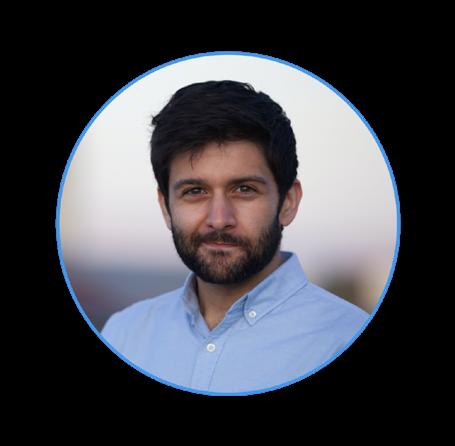
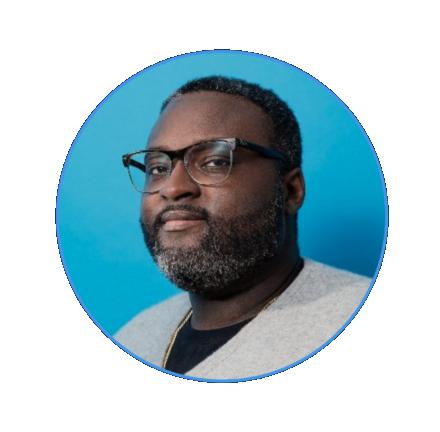
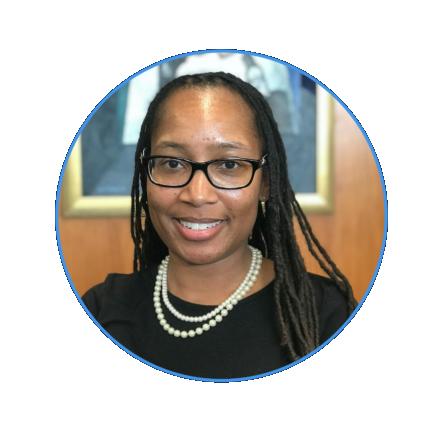
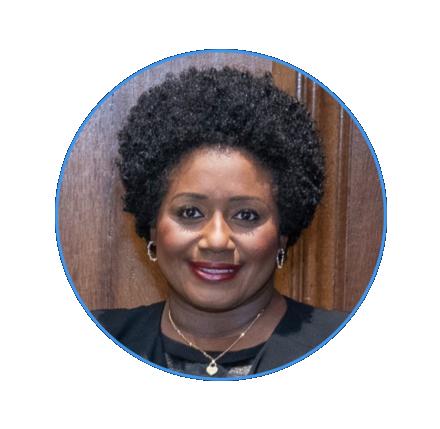
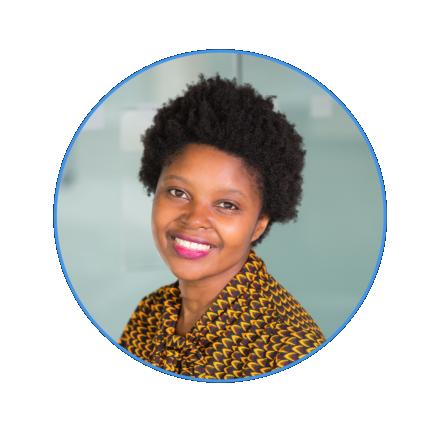
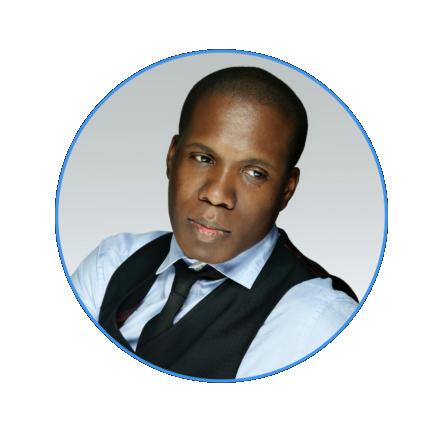
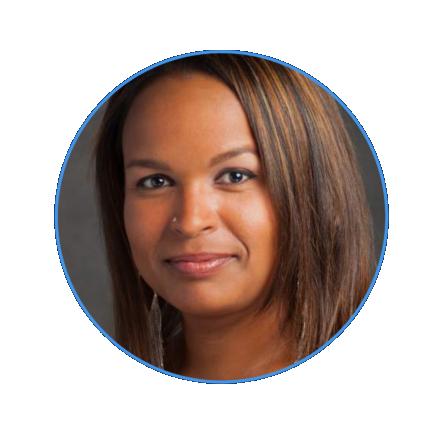
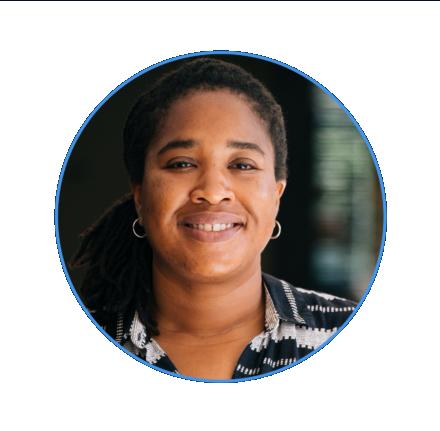
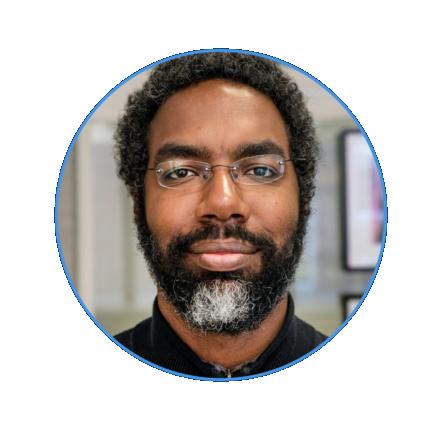
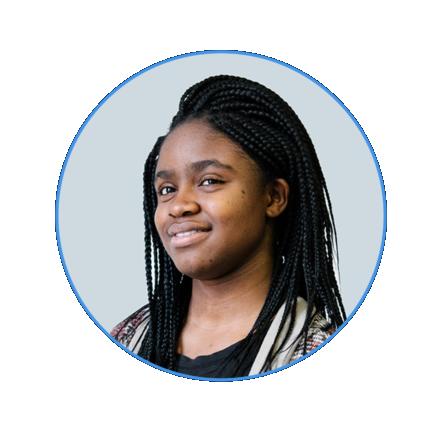
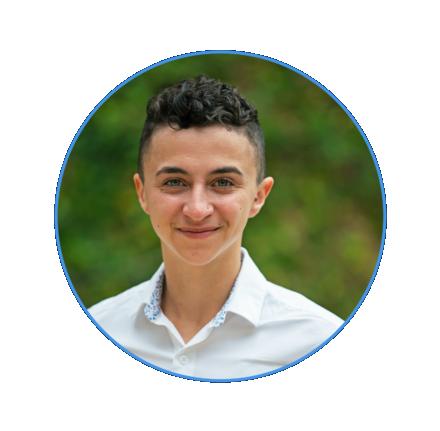
DSI’s Race + Data Science Lecture Series celebrates and advances research in the areas of race and data, engineering, and computational science. Our goal is to improve how we as data scientists and data-adjacent researchers speak about race, and we envision that these talks may lead to the discovery of important resources about race, inequity, and emerging applications. This series is funded by the MacArthur Foundation and New America. Guest speakers and topics include:
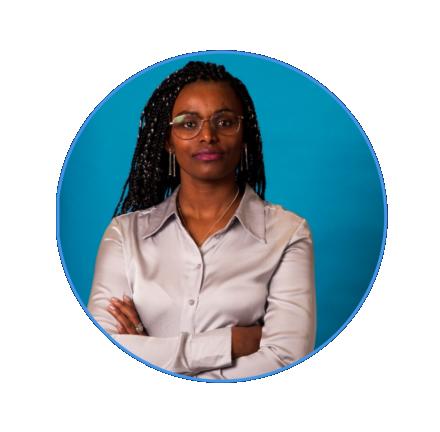
• Ali Alkhatib, University of San Francisco, piecework and street-level bureaucracies
• Abeba Birhane, University College Dublin, the limits of fairness
• Renée Cummings, University of Virginia, algorithmic injustice and reimagining ethical AI
• Deen Freelon, UNC Chapel Hill, citation inequities in the social sciences
• William Isaac, DeepMind, the value of critical data science in shaping emerging technologies
• Brandeis Marshall, Spelman College, marginalization in data education
• Jasmine McNealy, University of Florida, policy for the ecology of influence
• Danaë Metaxa, Stanford University, University of Pennsylvania, representation and belonging in sociotechnical systems
• Matt Mitchell, Ford Foundation, data science, cryptography, privacy, and cybersecurity’s role in racial justice and liberation
• Mutale Nkonde, AI for the People, elections, online chatter, and content moderation
• Deborah Raji, Mozilla, the challenges of audits, accountability, and algorithmic justice
• Maria Rodriguez, University at Buffalo, bystander interventions during racist online interactions
Outreach
DSI’s outreach efforts support the second part of the Institute’s mission statement: to transform all fields, professions, and sectors through the application of data science. We also work closely with industry; local, state, and national government funding agencies; and foundations.
SPONSORED EVENTS AND ACTIVITIES
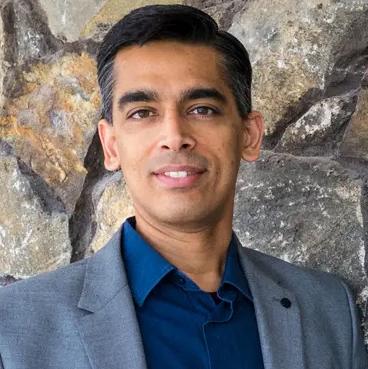
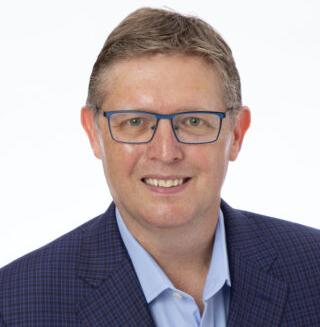
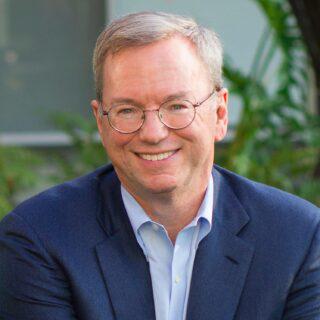

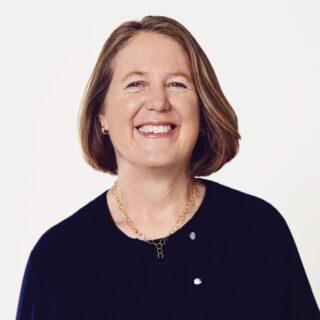

DSI’s flagship annual event is Data Science Day. The event showcases research through lightning talks, live demonstrations, and posters. Highlights have included keynote addresses by Alondra Nelson, Director of the White House Office of Science and Technology Policy; Sriram Raghavan, Vice President, IBM Research AI; Pat Bajari, Chief Economist and Vice President, Amazon Core AI; Eric Schmidt, Former Google Chief Executive Officer and Executive Chairman and Co-Founder of Schmidt Futures; Brad Smith, President of Microsoft; Diane Greene, CEO, Google Cloud; Alfred Spector, Chief Technology Officer and Head of Engineering at Two Sigma; and Dan Doctoroff, CEO, Sidewalk Labs.
DSI also has several seminar series: Data for Good Seminars, Distinguished Speaker Seminars, Poster Sessions, and iCubed (Institute, Industry, Innovation) Seminars. The recently established Race and Data Science Lecture Series, with funding from the MacArthur Foundation and New America, spotlights and advances research at the intersection of race and data.
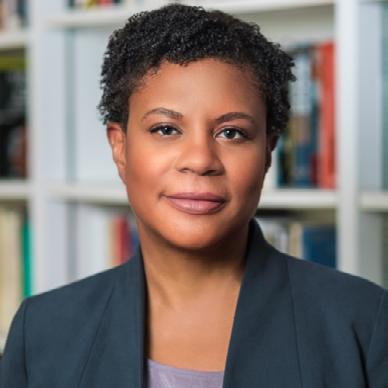
ENTREPRENEURSHIP
DSI offers students and faculty entrepreneurship-related opportunities from a portfolio of programs and events, in part by building on and partnering with the university-wide entities Columbia Technology Ventures and Columbia Entrepreneurship.
• DSI hosts and supports events to help the student body realize their aspirations to innovate. There are a number of hackathons, datathons, and venture competitions each year, some of which are sponsored by DSI industry affiliates or aligned with DSI’s “Data for Good” tagline.
• The Columbia Startup Lab is a 5,100-square-foot co-working space and home to more than 70 Columbia alumni entrepreneurs. DSI subsidizes one seat every year.
• Students and alumni may take advantage of accelerator programs that provide resources, learning, and strategic guidance to the early stage student startups in life sciences, clean energy, media, blockchain and data transparency, and cybersecurity.
Since 2020, four startups led by Columbia M.S. in Data Science alumni have been incubated by the Columbia Startup Lab, including:
• PressDB, founded by Chris Rusnack (2018), uses cutting-edge information extraction, machine learning, and subject-matter expertise to make fact-checking misinformation easy and quick for journalists and the general public.
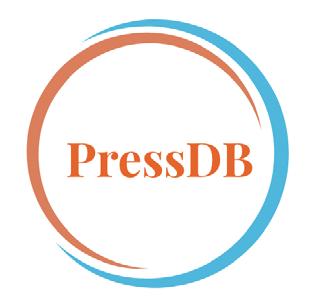
• AutoCEQR, co-founded by Daniel Sheehan (2020), ingests publicly available geospatial data and user-provided project inputs and returns standard analyses, data, and maps as required by New York City’s Environmental Quality Review Technical Manual.

• iXopp, co-founded by Alimu Mijiti (2017) and Vincent Pan (2020), is a location-based product search app that helps customers connect with local small businesses.

• AiTou Technology, founded by Xueqian An and Bin Xu (2019), aims to connect international applicants and employers open to international talent.

Faculty Recruitment
DSI works with deans and department heads to recruit new faculty to their schools and departments. The institute has been directly involved in helping to recruit 28 new faculty to Columbia in 16 schools, departments, institutes, and colleges across campus, including: Barnard, Business, Cancer Dynamics, Engineering, International and Public Affairs, Law, Mathematics, Medicine, Nursing, Political Science, Public Health, and Sociology. Support for the faculty ranges from partial salary support, startup costs, research funds, or access to DSI resources and affiliation with DSI.
Kellen Funk | Associate Professor, Columbia Law School
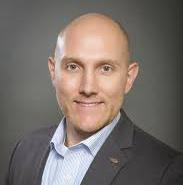
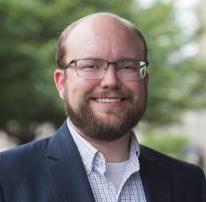
Funk’s first book, currently in revision, is The Lawyers’ Code: The Transformation of American Legal Practice; it explores how New York’s enactment in 1848 of the first American civil practice code granted significant power to lawyers in the management of litigation and codified rules of civil procedure that were adopted by other states and the federal courts. After graduating from Yale Law School in 2014, Funk clerked for U.S. District Judge Lee H. Rosenthal of the Southern District of Texas and then for Judge Stephen F. Williams of the U.S. Court of Appeals for the District of Columbia Circuit.
Tamar Mitts | Assistant Professor, School of International and Public Affairs
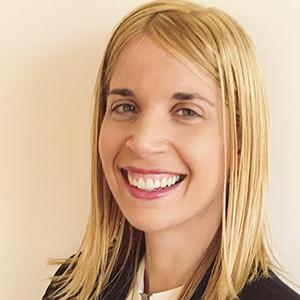
Mitts is a political scientist who uses data science and machine learning to examine the dynamics of conflict and political violence, with a focus on the causes and consequences of radicalization and violent extremism. Her current research examines the behavior of Islamic State supporters on social media. She studies how supporters respond to experiences of antiMuslim hostility in the West, how they react to online propaganda, and whether they are sensitive to counter-extremism programs aiming to reduce radicalization. These projects draw on new data on the online behavior of over a million users linked to the Islamic State on Twitter.
Maxim Topaz | Elizabeth Standish Gill Associate Professor of Nursing, School of Nursing
Topaz finds innovative ways to use the most recent technological breakthroughs, like text or data mining, to improve human health. He is one of the pioneers in applying natural language processing on data generated by nurses. His current work focuses on developing natural language processing solutions to advance clinical decision making. He was involved with health policy (national and international levels), leadership (e.g. Chair of the Emerging Professionals Working Group of the International Medical Informatics Association), and health entrepreneurship.
Gerard Torrats-Espinosa | Assistant Professor of Sociology, Faculty of Arts and Sciences
Torrats-Espinosa’s research draws from literature on urban sociology, stratification, and criminology. He focuses on understanding how the spatial organization of the American stratification system creates and reproduces inequality. His current research agenda investigates how the neighborhood context, particularly the experience of community violence, determines the life chances of children; how social capital and social organization emerge and evolve in spatial contexts; and how place and geography structure educational and economic opportunity in America and elsewhere.
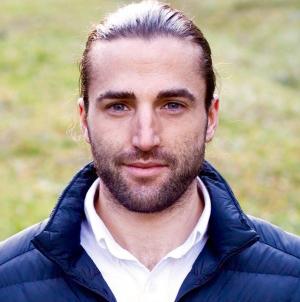
Industry Affiliates
The DSI Industry Affiliates program facilitates interactions between companies and faculty and students. The program has run since 2013, and there are currently 27 industry affiliates from a broad range of areas, including: finance, manufacturing, retail, consulting, pharmaceuticals, media, communications, information technology, software, and advertising. The benefits of being an industry affiliate include participation in special events, unique relationships with students, complimentary attendance at DSI-sponsored ticketed events, discounts on sponsored research, and special pricing for online data science training. DSI’s close relationship with industry increases the institute’s ability to bring research ideas to market and also helps align DSI’s education programs with industry expectations.
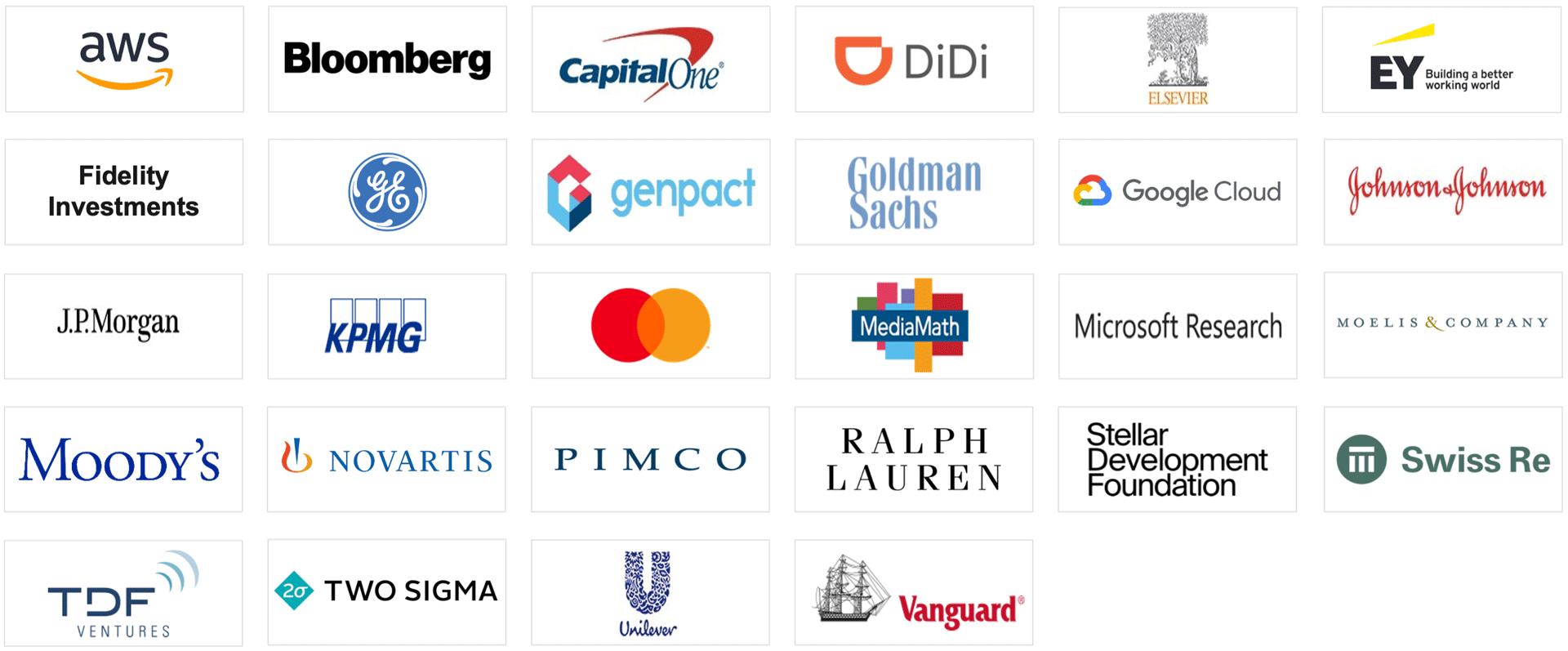
Columbia-IBM Center for Blockchain and Data Transparency
The Columbia-IBM Center for Blockchain and Data Transparency supports research, education, and an innovation accelerator to advance innovation in blockchain, data transparency, data sharing, fair use of data, and related technologies for the good of society. It is a joint initiative between Engineering and DSI, and is administered by DSI. This center represents a deep engagement with one company, a model DSI hopes to replicate for the future. The center comprises three funded “tracks”: The research track supports 12 research projects and six workshops. The education track provides support towards the creation of five new courses in blockchain and data transparency. The innovation accelerator track, a partnership with Columbia Technology Ventures, provides support towards building and scaling early-stage companies in the areas of data transparency, big data, artificial intelligence, machine learning, blockchain, cybersecurity, or related technology fields.

The following projects have received grants to contribute important research and innovation in blockchain, smart contracts, and data transparency.
An Introduction to Blockchain Technology | Xiaodong Wang (Electrical Engineering)
Blockchains and Applications | Alexandros Biliris and Eran Tromer (Computer Science)
Coded Blockchain for Internet of Things | Xiaodong Wang and Alexei Ashikhmin (Electrical Engineering)
Cryptographic Tools for Secure Sharing and Learning in the Wake of COVID-19 | Tal Malkin (Computer Science)
DeepSEA Framework for Building Certified Smart Contracts | Ronghui Gu (Computer Science)
Economics of Blockchain Adoption | Jay Sethuraman and Garud Iyengar (Industrial Engineering and Operations Research)
Foundations of Blockchain | Tim Roughgarden (Computer Science)
Incentive Compatible Blockchains | Christos Papidimitriou, Tim Roughgarden, and Xi Chen (Computer Science)
Increasing Usage of Exposure Notification Applications | Eric Johnson (Business)
Introduction to Blockchain and Cryptocurrencies | Gur Huberman (Business)
Machine Learning and the Changing Economics of Knowledge | Simona Abis and Laura Veldkamp (Business)

Pathways to Enabling and Ensuring Legal and Regulatory Certainty, Transparency and Security for Blockchain and Smart Contract Use in the Emerging Crypto-Economy | Leon Perlman and Robert Farrokhnia (Business)
Transparent Food Supply Chain Systems: Towards Increasing Efficiency and Sustainability Under Uncertainty | Agostino Capponi (Industrial Engineering and Operations Research)
People
Leadership
Clifford Stein Interim Director
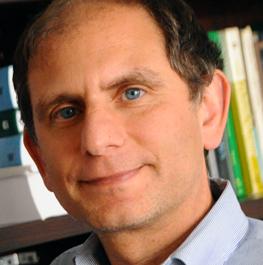
Wai T. Chang Professor of Industrial Engineering and Operations Research, The Fu Foundation School of Engineering and Applied Science
Stein served as chair of Columbia Engineering’s Industrial Engineering and Operations Research department and associate director of research for DSI. His research interests include the design and analysis of algorithms, combinatorial optimization, algorithms for big data, scheduling and algorithm engineering. He has published many influential papers in the leading conferences and journals in his field, and has occupied a variety of editorial positions including the journals ACM Transactions on Algorithms, Mathematical Programming, Journal of Algorithms, SIAM Journal on Discrete Mathematics, and Operations Research Letters. He is the co-author of two textbooks: Introduction to Algorithms with T. Cormen, C. Leiserson, and R. Rivest, which is currently the bestselling textbook in algorithms; and Discrete Math for Computer Scientists with K. Bogart and S. Drysdale. He is also an ACM Fellow and received an NSF Career Award, an Alfred Sloan Research Fellowship, and the Karen Wetterhahn Award for Distinguished Creative or Scholarly Achievement. He received a B.S.E. from Princeton University and M.S. and Ph.D. from Massachusetts Institute of Technology.
Patton
Associate Director of Diversity, Equity and Inclusion
Professor of Social Work, School of Social Work
Patton utilizes qualitative and computational data collection methods to examine how and why youth and gang violence, trauma, grief, and identity are expressed on social media and the real world impact they have on well-being for low-income youth of color. His research on internet banging has been featured by the Chicago Tribune, USA Today, NPR, Boston Magazine, and ABC News. He was also cited in an amicus curiae brief submitted to the U.S. Supreme Court in the Elonis vs. United States case, which examined the issues of interpreting threats on social media. Before coming to Columbia in 2015, Patton was an Assistant Professor at the University of Michigan School of Social Work and School of Information. He received a B.A. in Anthropology and Political Science with honors from the University of North CarolinaGreensboro, M.S.W. from the University of Michigan School of Social Work, and Ph.D. in Social Service Administration from the University of Chicago.
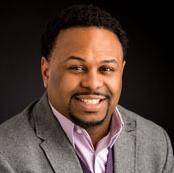
Ming Yuan
Associate Director for Academic Affairs
Professor of Statistics, Faculty of Arts and Sciences
Yuan served as Senior Investigator in Virology at Morgridge Institute for Research, Professor of Statistics at University of Wisconsin at Madison, and Coca-Cola Junior Professor of Industrial and Systems Engineering at Georgia Institute of Technology. His research and teaching interests lie broadly in statistics and its interface with other quantitative and computational fields such as optimization, machine learning, computational biology, and financial engineering and he has more than 100 scientific publications. Yuan was a Medallion Lecturer for the Institute for Mathematical Statistics (2018) and a recipient of the International Biometrics Society’s John van Ryzin Award (2004), the National Science Foundation Career Award (2009), the Royal Statistical Society’s Guy Medal in Bronze (2014), and the American Statistical Association’s Leo Breiman Junior Researcher Award (2017). He received a B.S. in Electrical Engineering and Information Sciences and M.S. in Probability and Statistics from the University of Science and Technology of China, and his M.S. in Computer Science and Ph.D. in Statistics from the University of Wisconsin-Madison.
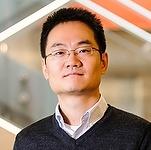
Ralph Scala Director of Development
Scala joined the Office of Alumni and Development in November 2017 to lead a comprehensive cross-campus fundraising effort for the Data Science Institute. He creates and manages a development plan to support the Institute and Columbia’s strategic mission and goals. He has more than 28 years of development-related experience at leading universities, including the University of California, Berkeley, Massachusetts Institute of Technology, Brown University, Harvard University, and Cornell University, and prestigious arts organizations, including The Boston Ballet, and Peabody Essex Museum,. Ralph received his B.S. in industrial engineering and M.B.A. from Binghamton University, State University of New York.
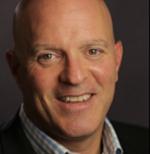
Sharon Sputz Executive Director of Strategic Programs
Sputz has combined experience in business strategy and technical research. Prior to joining the Data Science Institute in 2014, she spent 11 years at BAE Systems identifying and pursuing new business opportunities in leading edge technology. Sputz began her career at Bell Laboratories managing and coordinating material characterization and developing new and innovative tools. She moved on to become the strategic marketing manager at Lucent/ Agere with a variety of responsibilities, from leading the technical evaluation of merger and acquisition candidates to defining product planning for the optical networking group and components. Sharon received a B.S. in physics from State University of New York at Binghamton and an M.S. in physics from Stevens Institute of Technology.
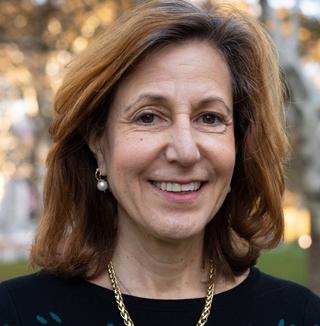
Jonathan Stark Chief Administrative and Operations Officer
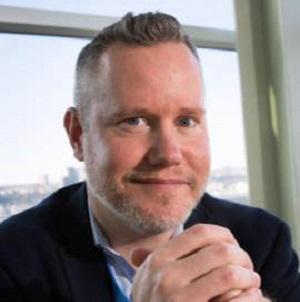
Stark has managerial responsibilities for human resources, finance, space, facilities, and information technology. He also supports the Institute’s strategic planning and execution and a broad portfolio of educational, research, and outreach programs. Prior to joining DSI, he served as assistant dean of graduate student and postdoctoral affairs and student affairs officer for the Office of Graduate Student Affairs for the Fu Foundation School of Engineering and Applied Science. His expertise includes academic administration, student development and advising, conflict resolution, university admissions, event planning, and management. Stark holds a B.A. in psychology from Western Connecticut State University, an M.A. in applied organizational psychology from Fairfield University, an M.A. in higher education from Teachers College of Columbia University, and an Ed.D. in higher education management from the University of Pennsylvania.
Amber E.H. Tingle Executive Director of Strategic Communications and Media Relations
Tingle joined the Data Science Institute in October 2019 with extensive experience in public relations, media relations, content development, and creative direction. She previously served as a director of communications in the State University of New York system, public relations specialist for Rutgers University, beauty and accessories editor for Uptown Magazine, and content producer for Harriette Cole Media.Tingle is also a “triple threat” performer with Broadway, off-Broadway, television, and film credits. She is an alumna of Howard University (B.A., summa cum laude, journalism) and the University of Pennsylvania (M.A., communication), and an active member of Actors’ Equity Association, SAG-AFTRA, MasterVoices, and The Links, Inc.
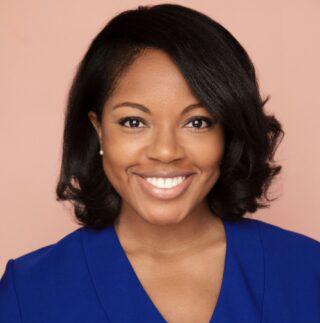
Members and Affiliates
The institute’s membership has grown to 370+ member collaborators across 17 Columbia schools, colleges, and institutes. This breadth of engagement reflects the multidisciplinary nature of data science and aligns with the institute’s mission.

COMPUTING SYSTEMS FOR DATA-DRIVEN SCIENCE
CHAIRS
Qiang Du, The Fu Foundation School of Engineering and Applied Science, Fu Foundation Professor of Applied Mathematics
Martha Kim, The Fu Foundation School of Engineering and Applied Science, Associate Professor of Computer Science
COMMITTEE
Ryan Abernathey, Faculty of Arts and Sciences, Associate Professor of Earth and Environmental Sciences
Greg L. Bryan, Faculty of Arts and Sciences, Professor of Astronomy
Andrew E. Gelman, Faculty of Arts and Sciences, Higgins Professor of Statistics and Professor of Political Science
Daniel J. Hsu, The Fu Foundation School of Engineering and Applied Science, Associate Professor of Computer Science
Kerstin A. Lehnert, The Earth Institute, Doherty Senior Research Scientist in the Lamont-Doherty Earth Observatory
Kyle T. Mandli, The Fu Foundation School of Engineering and Applied Science, Associate Professor of Applied Physics and Applied Mathematics
Robert D. Mawhinney, Faculty of Arts and Sciences, Professor of Physics; Dean of Science, Faculty of Arts and Sciences
Paul Sajda, The Fu Foundation School of Engineering and Applied Science, Professor of Biomedical Engineering, Radiology (Physics) and Electrical Engineering
Gavin A. Schmidt, The Earth Institute, Adjunct Senior Research Scientist in the Center for Climate Systems Research in the Earth Institute
Nicholas P. Tatonetti, Vagelos College of Physicians and Surgeons, Associate Professor of Biomedical Informatics (in System Biology and Medicine)
Eugene Wu, The Fu Foundation School of Engineering and Applied Science, Associate Professor of Computer Science
AFFILIATED MEMBERS
Raimondo Betti, The Fu Foundation School of Engineering and Applied Science, Professor of Civil Engineering and Engineering Mechanics
Daniel Bienstock, The Fu Foundation School of Engineering and Applied Science, Liu Family Professor of Industrial Engineering and Operations Research and Professor of Applied Physics and Applied Mathematics
David Blei, Faculty of Arts and Sciences, Professor of Statistics; The Fu Foundation School of Engineering and Applied Science, Professor of Computer Science
Mark A. Cane, The Earth Institute, G. Unger Vetlesen Professor Emeritus of Earth and Climate Sciences and Special Research Scientist in the Lamont-Doherty Earth Observatory; The Fu Foundation School of Engineering and Applied Science, Professor Emeritus of Applied Physics and Applied Mathematics
Luca Carloni, The Fu Foundation School of Engineering and Applied Science, Professor of Computer Science
Asaf Cidon, The Fu Foundation School of Engineering and Applied Science, Assistant Professor of Electrical Engineering
Stephen A. Edwards, The Fu Foundation School of Engineering and Applied Science, Associate Professor of Computer Science
Stefano Fusi, Vagelos College of Physicians and Surgeons, Professor of Neuroscience (in the Mortimer B. Zuckerman Mind Brain Behavior Institute)
Jellert Gaublomme, Faculty of Arts and Sciences, Assistant Professor of Biological Sciences
Roxana Geambasu, The Fu Foundation School of Engineering and Applied Science, Associate Professor of Computer Science
Pierre Gentine, The Fu Foundation School of Engineering and Applied Science, Associate Professor of Earth and Environmental Engineering
Marco Giometto, The Fu Foundation School of Engineering and Applied Science, Assistant Professor of Civil Engineering and Engineering Mechanics
Zoltan Haiman, Faculty of Arts and Sciences, Professor of Astronomy
Xiaofu He, Vagelos College of Physicians and Surgeons, Assistant Professor of Clinical Neurobiology (in Psychiatry)
Suman Jana, The Fu Foundation School of Engineering and Applied Science, Associate Professor of Computer Science
Kathryn V. Johnston, Faculty of Arts and Sciences, Professor of Astronomy
Gail Kaiser, The Fu Foundation School of Engineering and Applied Science, Professor of Computer Science
Georgia Karagiorgi, Faculty of Arts and Sciences, Assistant Professor of Physics
David Keyes, The Fu Foundation School of Engineering and Applied Science, Adjunct Professor of Applied Physics and Applied Mathematics
David A. Knowles, The Fu Foundation School of Engineering and Applied Science, Assistant Professor of Computer Science
Aurel A. Lazar, The Fu Foundation School of Engineering and Applied Science, Professor of Electrical Engineering
Jason Nieh, The Fu Foundation School of Engineering and Applied Science, Professor of Computer Science
Jonathan Owen, Faculty of Arts and Sciences, Associate Professor of Chemistry
Baishakhi Ray, The Fu Foundation School of Engineering and Applied Science, Assistant Professor of Computer Science
Kenneth Ross, The Fu Foundation School of Engineering and Applied Science, Professor of Computer Science
Mingoo Seok, The Fu Foundation School of Engineering and Applied Science, Associate Professor of Electrical Engineering
Simha Sethumadhavan, The Fu Foundation School of Engineering and Applied Science, Associate Professor of Computer Science
Lorenzo Sironi, Faculty of Arts and Sciences, Assistant Professor of Astronomy
Clifford Stein, Data Science Institute, Interim Director; The Fu Foundation School of Engineering and Applied Science, Wai T. Chang Professor of Industrial Engineering and Operations Research
Marco Tedesco, The Earth Institute, Lamont Research Professor in the Lamont-Doherty Earth Observatory; Lecturer in Professional Studies
Venkat Venkatasubramanian, The Fu Foundation School of Engineering and Applied Science, Samuel Ruben-Peter G. Viele Professor of Engineering
Carl Vondrick, The Fu Foundation School of Engineering and Applied Science, Assistant Professor of Computer Science
Renata M. M. Wentzcovitch, The Fu Foundation School of Engineering and Applied Science, Professor of Material Science and Applied Physics, and Earth and Environmental Science
Sebastian Will, Faculty of Arts and Sciences, Assistant Professor of Physics
Zhou Yu, The Fu Foundation School of Engineering and Applied Science, Assistant Professor of Computer Science
CYBERSECURITY CHAIR
Rebecca Wright, Barnard College, Faculty Director of the Vagelos Computational Science Center, Druckenmiller Director and Professor of Computer Science
COMMITTEE
Steven M. Bellovin, The Fu Foundation School of Engineering and Applied Science, Percy K. and Vida L. W. Hudson Professor of Computer Science
Roxana Geambasu, The Fu Foundation School of Engineering and Applied Science, Associate Professor of Computer Science
Jason Healey, School of International and Public Affairs, Senior Research Scholar in the Faculty of International and Public Affairs
Suman Jana, The Fu Foundation School of Engineering and Applied Science, Associate Professor of Computer Science
Clarisa Long, Columbia Law School, Max Mendel Shaye Professor of Intellectual Property Law
Susan McGregor, Data Science Institute, Associate Research Scholar
Shivaram Rajgopal, Columbia Business School, Roy Bernard Kester and T.W. Byrnes Professor of Accounting and Auditing
Daniel Richman, Columbia Law School, Paul J. Kellner Professor of Law
Soumitra Sengupta, Vagelos College of Physicians and Surgeons, Associate Professor of Biomedical Informatics
Salvatore Stolfo, The Fu Foundation School of Engineering and Applied Science, Professor of Computer Science
AFFILIATED MEMBERS
Asaf Cidon, The Fu Foundation School of Engineering and Applied Science, Assistant Professor of Electrical Engineering
Bo Cowgill, Columbia Business School, Assistant Professor of Business
Siddhartha Dalal, Faculty of Arts and Sciences, Professor of Professional Practice in Applied Analytics in the Faculty of Professional Studies
Ronghui Gu, The Fu Foundation School of Engineering and Applied Science, Assistant Professor of Computer Science
Gail Kaiser, The Fu Foundation School of Engineering and Applied Science, Professor of Computer Science
Samory Kpotufe, Faculty of Arts and Sciences, Associate Professor of Statistics
Christian Kroer, The Fu Foundation School of Engineering and Applied Science, Assistant Professor of Industrial Engineering and Operations Research
Arthur Langer, Faculty of Arts and Sciences, Professor of Professional Practice in Technology Management, Executive Director of Center for Technology Management
Tal Malkin, The Fu Foundation School of Engineering and Applied Science, Professor of Computer Science
Eben Moglen, Columbia Law School, Professor of Law
Jason Nieh, The Fu Foundation School of Engineering and Applied Science, Professor of Computer Science
Baishakhi Ray, The Fu Foundation School of Engineering and Applied Science, Assistant Professor of Computer Science
Henning Schulzrinne, The Fu Foundation School of Engineering and Applied Science, Julian Clarence Levi Professor of Mathematical Methods and Computer Science, Professor of Electrical Engineering
Simha Sethumadhavan, The Fu Foundation School of Engineering and Applied Science, Associate Professor of Computer Science
Eric L. Talley, Columbia Law School, Isidor and Seville Sulzbacher Professor of Law
Eran Tromer, The Fu Foundation School of Engineering and Applied Science, Associate Research Scientist in the Department of Computer Science
Matthew Waxman, Columbia Law School, Liviu Librescu Professor of Law
Jeannette M. Wing, Executive Vice President for Research; The Fu Foundation School of Engineering and Applied Science, Professor of Computer Science
Junfeng Yang, The Fu Foundation School of Engineering and Applied Science, Associate Professor of Computer Science
DATA, MEDIA, AND SOCIETY
CHAIRS
Susan McGregor, Data Science Institute, Associate Research Scholar
Eugene Wu, The Fu Foundation School of Engineering and Applied Science, Associate Professor of Computer Science
COMMITTEE
Manan Ahmed, Faculty of Arts and Sciences, Associate Professor of History
Shih-Fu Chang, The Fu Foundation School of Engineering and Applied Science, Interim Dean of Columbia Engineering, Richard Dicker Professor of Telecommunications and Professor of Computer Science
Lydia Chilton, The Fu Foundation School of Engineering and Applied Science, Assistant Professor of Computer Science
Mark Hansen, Columbia Journalism School, David and Helen Gurley Brown Professor of Journalism and Innovation; Director, David and Helen Gurley Brown Institute of Media Innovation
Lena Mamykina, Vagelos College of Physicians and Surgeons, Associate Professor of Biomedical Informatics
Kathleen R. McKeown, The Fu Foundation School of Engineering and Applied Science, Henry and Gertrude Rothschild Professor of Computer Science; Data Science Institute, Founding Director
Desmond Upton Patton, Data Science Institute, Associate Director of Diversity, Equity and Inclusion; School of Social Work, Professor of Social Work
AFFILIATED MEMBERS
Peter K. Allen, The Fu Foundation School of Engineering and Applied Science, Professor of Computer Science
Asim Ansari, Columbia Business School, William T. Dillard Professor of Marketing
John L. Battelle, School of International and Public Affairs, Adjunct Senior Research Scholar and Adjunct Professor
Emily J. Bell, Columbia Journalism School, Professor of Professional Practice in the Faculty of Journalism; Director, Tow Center for Digital Journalism
Omar Besbes, Columbia Business School, Associate Professor of Business
Paulo Blikstein, Teachers College, Associate Professor of Communications, Media and Learning Technology Design
Augustin Chaintreau, The Fu Foundation School of Engineering and Applied Science, Associate Professor of Computer Science
Matthew J. Connelly, Faculty of Arts and Sciences, Professor of History; Director, Institute of Social and Economic Research and Policy
Rob Eschmann, School of Social Work, Associate Professor of Social Work
Steven K. Feiner, The Fu Foundation School of Engineering and Applied Science, Professor of Computer Science
Kellen Funk, Columbia Law School, Associate Professor in the Faculty of Law
Talia Gillis, Columbia Law School, Associate Professor of Law
Vineet Goyal, The Fu Foundation School of Engineering and Applied Science, Associate Professor of Industrial Engineering and Operations Research
Luis Gravano, The Fu Foundation School of Engineering and Applied Science, Professor of Computer Science
Geoffrey Heal, Columbia Business School, Donald C. Waite III Professor of Social Enterprise in the Faculty of Business; School of International and Public Affairs, Professor of International and Public Affairs
Ali Hirsa, The Fu Foundation School of Engineering and Applied Science, Professor of Professional Practice in the Department of Industrial Engineering and Operations Research
Julia Hirschberg, The Fu Foundation School of Engineering and Applied Science, Percy K. and Vida L. W. Hudson Professor of Computer Science
John R. Kender, The Fu Foundation School of Engineering and Applied Science, Professor of Computer Science
Bruce M. Kogut, Columbia Business School, Sanford C. Bernstein & Co. Professor of Leadership and Ethics; Faculty of Arts and Sciences, Professor of Sociology
Laura Kurgan, Graduate School of Architecture Planning and Preservation, Professor of Architecture, Planning and Preservation
Colin Wayne Leach, Barnard College, Professor of Psychology
Hod Lipson, The Fu Foundation School of Engineering and Applied Science, James and Sally Scapa Professor of Innovation in the Department of Mechanical Engineering
Michael Mauskapf, Columbia Business School, Assistant Professor of Business
Tamar Mitts, School of International and Public Affairs, Assistant Professor of International and Public Affairs
Smaranda Muresan, Data Science Institute, Research Scientist; The Fu Foundation School of Engineering and Applied Science, Adjunct Associate Professor of Computer Science
Suresh Naidu, School of International and Public Affairs, Professor of International and Public Affairs and Economics
Gary Natriello, Teachers College, Ruth L. Gottesman Professor in Educational Research
Shree K. Nayar, The Fu Foundation School of Engineering and Applied Science, T.C. Chang Professor of Computer Science
Jason Nieh, The Fu Foundation School of Engineering and Applied Science, Professor of Computer Science
John Robertson, School of Social Work, Lecturer in the Discipline of Social Work
Dan Rubenstein, The Fu Foundation School of Engineering and Applied Science, Professor of Computer Science
Juan Francisco Saldarriaga, Columbia Journalism School, Associate Research Scholar in the Faculty of Journalism
Henning Schulzrinne, The Fu Foundation School of Engineering and Applied Science, Julian Clarence Levi Professor of Mathematical Methods and Computer Science and Professor of Electrical Engineering
Shuran Song, The Fu Foundation School of Engineering and Applied Science, Assistant Professor of Computer Science
Konstantin Stojanovic, Vagelos College of Physicians and Surgeons, Assistant Professor of Neurology
Dennis Tenen, Faculty of Arts and Sciences, Associate Professor of English and Comparative Literature
Duy Linh Tu, Columbia Journalism School, Associate Professor of Professional Practice in the Faculty of Journalism
Barbara Tversky, Teachers College, Professor of Psychology and Education
Nakul Verma, The Fu Foundation School of Engineering and Applied Science, Lecturer in the Discipline of Computer Science
John Wright, The Fu Foundation School of Engineering and Applied Science, Associate Professor of Electrical Engineering
Zhou Yu, The Fu Foundation School of Engineering and Applied Science, Assistant Professor of Computer Science
Richard Zemel, The Fu Foundation School of Engineering and Applied Science, Trianthe Dakolias
Professor of Engineering and Applied Science and Professor of Computer Science
Changxi Zheng, The Fu Foundation School of Engineering and Applied Science, Associate Professor of Computer Science
FINANCIAL AND BUSINESS ANALYTICS
CHAIRS
Paul Glasserman, Columbia Business School, Jack R. Anderson Professor of Business
David Yao, The Fu Foundation School of Engineering and Applied Science, Piyasombatkul Family Professor of Industrial Engineering and Operations Research
COMMITTEE
Michael Johannes, Columbia Business School, Ann F. Kaplan Professor of Business
Harry Mamaysky, Columbia Business School, Professor of Professional Practice in the Faculty of Business
Oded Netzer, Columbia Business School, Arthur J. Samberg Professor of Business
Serena Ng, Faculty of Arts and Sciences, Edwin W. Rickert Professor of Economics
Marcel Nutz, Faculty of Arts and Sciences, Professor of Statistics
Olivier Toubia, Columbia Business School, Glaubinger Professor of Business
AFFILIATED MEMBERS
Simona Abis, Columbia Business School, Assistant Professor of Business
Asim Ansari, Columbia Business School, William T. Dillard Professor of Marketing
Tania Babina, Columbia Business School, Assistant Professor of Business
Jushan Bai, Faculty of Arts and Sciences, Professor of Economics
Omar Besbes, Columbia Business School, Associate Professor of Business
Daniel Bienstock, The Fu Foundation School of Engineering and Applied Science, Liu Family Professor of Industrial Engineering and Operations Research, Professor of Applied Physics and Applied Mathematics
Mark N. Broadie, Columbia Business School, Carson Family Professor of Business
Agostino Capponi, The Fu Foundation School of Engineering and Applied Science, Associate Professor of Industrial Engineering and Operations Research
Carri W. Chan, Columbia Business School, Associate Professor of Business
Siddhartha Dalal, Faculty of Arts and Sciences, Professor of Professional Practice in Applied Analytics in the Faculty of Professional Studies
Kent Daniel, Columbia Business School, Jean-Marie Eveillard Professor of Business, Senior Vice Dean of Faculty Affairs
Richard A. Davis, Faculty of Arts and Sciences, Howard Levene Professor of Statistics
Emanuel Derman, The Fu Foundation School of Engineering and Applied Science, Professor of Professional Practice in the Department of Industrial Engineering and Operations Research
Patrice Derrington, Graduate School of Architecture Planning and Preservation, Holliday Associate Professor of Real Estate Development
Ton Dieker, The Fu Foundation School of Engineering and Applied Science, Associate Professor of Industrial Engineering and Operations Research
Adam Elmachtoub, The Fu Foundation School of Engineering and Applied Science, Associate Professor of Industrial Engineering and Operations Research
Awi Federgruen, Columbia Business School, Charles E. Exley Professor of Management
Talia Gillis, Columbia Law School, Associate Professor of Law
Donald Goldfarb, The Fu Foundation School of Engineering and Applied Science, Alexander and Hermine Avanessians Professor of Industrial Engineering and Operations Research
Vineet Goyal, The Fu Foundation School of Engineering and Applied Science, Associate Professor of Industrial Engineering and Operations Research
Linda V. Green, Columbia Business School, Cain Brothers & Company Professor of Healthcare Management in the Faculty of Business
Jorge Guzman, Columbia Business School, Assistant Professor of Business
Geoffrey Heal, Columbia Business School, Donald C. Waite III Professor of Social Enterprise in the Faculty of Business; School of International and Public Affairs, Professor of International and Public Affairs
Ali Hirsa, The Fu Foundation School of Engineering and Applied Science, Professor of Professional Practice in the Department of Industrial Engineering and Operations Research
Garud N. Iyengar, The Fu Foundation School of Engineering and Applied Science, Tang Family Professor of Industrial Engineering and Operations Research
Soulaymane Kachani, The Fu Foundation School of Engineering and Applied Science, Senior Vice Dean and Professor of Professional Practice in the Department of Industrial Engineering and Operations Research; Vice Provost for Teaching, Learning and Innovation
Yash Kanoria, Columbia Business School, Sidney Taurel Associate Professor of Business
Bruce M. Kogut, Columbia Business School, Sanford C. Bernstein & Co. Professor of Leadership and Ethics; Faculty of Arts and Sciences, Professor of Sociology
Daniel Lacker, The Fu Foundation School of Engineering and Applied Science, Assistant Professor of Industrial Engineering and Operations Research
Upmanu Lall, The Fu Foundation School of Engineering and Applied Science, Alan and Carol Silberstein Professor of Earth and Environmental Engineering and of Civil Engineering and Engineering Mechanics; Director, Columbia Water Center in the Earth Institute; Chair, Department of Earth and Environmental Engineering
Henry Lam, The Fu Foundation School of Engineering and Applied Science, Associate Professor of Industrial Engineering and Operations Research
Anton Lines, Columbia Business School, Assistant Professor of Business
Costis Maglaras, Columbia Business School, David and Lyn Silfen Professor of Business and Dean
Sandra C. Matz, Columbia Business School, Daniel W. Zalaznick Associate Professor of Business
Joshua Mitts, Columbia Law School, Associate Professor of Law
Ciamac Cyrus Moallemi, Columbia Business School, William von Mueffling Professor of Business
Hongseok Namkoong, Columbia Business School, Assistant Professor of Business
Sharyn O’Halloran, School of International and Public Affairs, George Blumenthal Professor and Professor of International and Public Affairs; Faculty of Arts and Sciences, Senior Vice Dean and Chief Academic Officer in the School of Professional Studies
Philip E. Protter, Faculty of Arts and Sciences, Professor of Statistics
Lucius J. Riccio, School of International and Public Affairs, Lecturer in the Discipline of International and Public Affairs
Kai Ruggeri, Mailman School of Public Health, Assistant Professor of Health Policy and Management
Jay Sethuraman, The Fu Foundation School of Engineering and Applied Science, Professor of Industrial Engineering and Operations Research and Department Chair
Karl Sigman, The Fu Foundation School of Engineering and Applied Science, Professor of Industrial Engineering and Operations Research
Clifford Stein, Data Science Institute, Interim Director; The Fu Foundation School of Engineering and Applied Science, Wai T. Chang Professor of Industrial Engineering and Operations Research
Marco Tedesco, The Earth Institute, Lamont Research Professor in the Lamont-Doherty Earth Observatory; Lecturer in Professional Studies
Van-Anh Truong, The Fu Foundation School of Engineering and Applied Science, Associate Professor of Industrial Engineering and Operations Research
Venkat Venkatasubramanian, The Fu Foundation School of Engineering and Applied Science, Samuel Ruben-Peter G. Viele Professor of Engineering
Ward Whitt, The Fu Foundation School of Engineering and Applied Science, Wai T. Chang Professor of Industrial Engineering and Operations Research
Johannes Wiesel, Faculty of Arts and Sciences, Assistant Professor of Statistics
Zhou Yu, The Fu Foundation School of Engineering and Applied Science, Assistant Professor of Computer Science
Ming Yuan, Data Science Institute, Associate Director for Academic Affairs; Faculty of Arts and Sciences, Professor of Statistics
Asaaf Zeevi, Columbia Business School, Kravis Professor of Business
Xunyu Zhou, The Fu Foundation School of Engineering and Applied Science, Liu Family Professor of Financial Engineering
FOUNDATIONS OF DATA SCIENCE
CHAIRS
Alexandr Andoni, The Fu Foundation School of Engineering and Applied Science, Associate Professor of Computer Science
John Wright, The Fu Foundation School of Engineering and Applied Science, Associate Professor of Electrical Engineering
COMMITTEE
Daniel J. Hsu, The Fu Foundation School of Engineering and Applied Science, Associate Professor of Computer Science
Kenneth Ross, The Fu Foundation School of Engineering and Applied Science, Professor of Computer Science
Rocco A. Servedio, The Fu Foundation School of Engineering and Applied Science, Professor of Computer Science and Department Chair
Jay Sethuraman, The Fu Foundation School of Engineering and Applied Science, Professor of Industrial Engineering and Operations Research and Department Chair
Venkat Venkatasubramanian, The Fu Foundation School of Engineering and Applied Science, Samuel Ruben-Peter G. Viele Professor of Engineering
Tian Zheng, Faculty of Arts and Sciences, Professor of Statistics and Department Chair
AFFILIATED MEMBERS
Shipra Agrawal, The Fu Foundation School of Engineering and Applied Science, Cyrus Derman Assistant Professor of Industrial Engineering and Operations Research
Peter K. Allen, The Fu Foundation School of Engineering and Applied Science, Professor of Computer Science
Dimitris Anastassiou, The Fu Foundation School of Engineering and Applied Science, Charles Batchelor Professor of Electrical Engineering; Vagelos College of Physicians and Surgeons, Professor of Systems Biology
James Anderson, The Fu Foundation School of Engineering and Applied Science, Assistant Professor of Electrical Engineering
Asim Ansari, Columbia Business School, William T. Dillard Professor of Marketing
Elham Azizi, The Fu Foundation School of Engineering and Applied Science, Assistant Professor of Biomedical Engineering; Irving Institute for Cancer Dynamics, Florence Irving Assistant Professor of Cancer Data Research
Jushan Bai, Faculty of Arts and Sciences, Professor of Economics
Eric Balkanski, The Fu Foundation School of Engineering and Applied Science, Assistant Professor of Industrial Engineering and Operations Research
Elias Bareinboim, The Fu Foundation School of Engineering and Applied Science, Associate Professor of Computer Science
Daniel Bienstock, The Fu Foundation School of Engineering and Applied Science, Liu Family Professor of Industrial Engineering and Operations Research, Professor of Applied Physics and Applied Mathematics
David Blei, Faculty of Arts and Sciences, Professor of Statistics; The Fu Foundation School of Engineering and Applied Science, Professor of Computer Science
Michael P. Burke, The Fu Foundation School of Engineering and Applied Science, Associate Professor of Mechanical Engineering
Luca Carloni, The Fu Foundation School of Engineering and Applied Science, Professor of Computer Science
Shih-Fu Chang, The Fu Foundation School of Engineering and Applied Science, Interim Dean of Columbia
Engineering, Richard Dicker Professor of Telecommunications and Professor of Computer Science
Robert S. Chen, The Earth Institute, Senior Research Scientist in the Center for International Earth Science Information Network and Director
Ivan Corwin, Faculty of Arts and Sciences, Professor of Mathematics
John P. Cunningham, Faculty of Arts and Sciences, Associate Professor of Statistics
Eleni Drinea, The Fu Foundation School of Engineering and Applied Science, Senior Lecturer in the Discipline of Computer Science and in the Discipline of Industrial Engineering and Operations Research
Qiang Du, The Fu Foundation School of Engineering and Applied Science, Fu Foundation Professor of Applied Mathematics
Deren Eaton, Faculty of Arts and Sciences, Assistant Professor of Ecology, Evolution and Environmental Biology
Steven Ellis, Vagelos College of Physicians and Surgeons, Associate Professor of Clinical Neurobiology in Psychiatry
Adam Elmachtoub, The Fu Foundation School of Engineering and Applied Science, Associate Professor of Industrial Engineering and Operations Research
Yuri Faenza, The Fu Foundation School of Engineering and Applied Science, Assistant Professor of Industrial Engineering and Operations Research
Arlene Fiore, Faculty of Arts and Sciences, Professor of Earth and Environmental Sciences
Andrew E. Gelman, Faculty of Arts and Sciences, Higgins Professor of Statistics and Professor of Political Science
Javad Ghaderi, The Fu Foundation School of Engineering and Applied Science, Associate Professor of Electrical Engineering
Donald Goldfarb, The Fu Foundation School of Engineering and Applied Science, Alexander and Hermine Avanessians Professor of Industrial Engineering and Operations Research
Jeff Goldsmith, Mailman School of Public Health, Associate Professor of Biostatistics
Vineet Goyal, The Fu Foundation School of Engineering and Applied Science, Associate Professor of Industrial Engineering and Operations Research
Luis Gravano, The Fu Foundation School of Engineering and Applied Science, Professor of Computer Science
Xiaofu He, Vagelos College of Physicians and Surgeons, Assistant Professor of Clinical Neurobiology (in Psychiatry)
Ali Hirsa, The Fu Foundation School of Engineering and Applied Science, Professor of Professional Practice in the Department of Industrial Engineering and Operations Research
Matthew L. Jones, Faculty of Arts and Sciences, James R. Barker Professor of Contemporary Civilization
Soulaymane Kachani, The Fu Foundation School of Engineering and Applied Science, Senior Vice Dean and Professor of Professional Practice in the Department of Industrial Engineering and Operations Research; Vice Provost for Teaching, Learning and Innovation
Yash Kanoria, Columbia Business School, Sidney Taurel Associate Professor of Business
David Keyes, The Fu Foundation School of Engineering and Applied Science, Adjunct Professor of Applied Physics and Applied Mathematics
Marianthi-Anna Kioumourtzoglou, Mailman School of Public Health, Assistant Professor of Environmental Health Sciences
David A. Knowles, The Fu Foundation School of Engineering and Applied Science, Assistant Professor of Computer Science
Samory Kpotufe, Faculty of Arts and Sciences, Associate Professor of Statistics
Christian Kroer, The Fu Foundation School of Engineering and Applied Science, Assistant Professor of Industrial Engineering and Operations Research
Upmanu Lall, The Fu Foundation School of Engineering and Applied Science, Alan and Carol Silberstein Professor of Earth and Environmental Engineering and of Civil Engineering and Engineering Mechanics; Director, Columbia Water Center in the Earth Institute; Chair, Department of Earth and Environmental Engineering
Aurel A. Lazar, The Fu Foundation School of Engineering and Applied Science, Professor of Electrical Engineering
Anton Lines, Columbia Business School, Assistant Professor of Business
Hod Lipson, The Fu Foundation School of Engineering and Applied Science, James and Sally Scapa Professor of Innovation in the Department of Mechanical Engineering
Arian Maleki, Faculty of Arts and Sciences, Associate Professor of Statistics
Daniel Malinsky, Mailman School of Public Health, Assistant Professor of Biostatistics
Tal Malkin, The Fu Foundation School of Engineering and Applied Science, Professor of Computer Science
Szabolcs Márka, Faculty of Arts and Sciences, Walter O. LeCroy, Jr. Professor of Physics
Kathleen R. McKeown, The Fu Foundation School of Engineering and Applied Science, Henry and Gertrude Rothschild Professor of Computer Science; Data Science Institute, Founding Director
Christoph Meinrenken, The Earth Institute, Associate Research Scientist
Ciamac Cyrus Moallemi, Columbia Business School, William von Mueffling Professor of Business
Hongseok Namkoong, Columbia Business School, Assistant Professor of Business
Serena Ng, Faculty of Arts and Sciences, Edwin W. Rickert Professor of Economics
José Luis Montiel Olea, Faculty of Arts and Sciences, Assistant Professor of Economics
John Paisley, The Fu Foundation School of Engineering and Applied Science, Associate Professor of Electrical Engineering
Liam Paninski, Faculty of Arts and Sciences, Professor of Statistics and Neuroscience
Itsik Pe’er, The Fu Foundation School of Engineering and Applied Science, Associate Professor of Computer Science and Systems Biology
Toniann Pitassi, The Fu Foundation School of Engineering and Applied Science, Jeffrey L. and Brenda Bleustein Professor of Engineering
Min Qian, Mailman School of Public Health, Associate Professor of Biostatistics
Kui Ren, The Fu Foundation School of Engineering and Applied Science, Professor of Applied Physics and Applied Mathematics
Tim Roughgarden, The Fu Foundation School of Engineering and Applied Science, Professor of Computer Science
Dan Rubenstein, The Fu Foundation School of Engineering and Applied Science, Professor of Computer Science
Cynthia Rush, Faculty of Arts and Sciences, Howard Levene Assistant Professor of Statistics
Paul Sajda, The Fu Foundation School of Engineering and Applied Science, Professor of Biomedical Engineering, Radiology (Physics) and Electrical Engineering
Ansaf Salleb-Aouissi, The Fu Foundation School of Engineering and Applied Science, Lecturer in the Discipline of Computer Science in the Department of Computer Science
Clifford Stein, Data Science Institute, Interim Director; The Fu Foundation School of Engineering and Applied Science, Wai T. Chang Professor of Industrial Engineering and Operations Research
Konstantin Stojanovic, Vagelos College of Physicians and Surgeons, Assistant Professor of Neurology
Nicholas P. Tatonetti, Vagelos College of Physicians and Surgeons, Associate Professor of Biomedical Informatics (in System Biology and Medicine)
Zenna Tavares, Data Science Institute, Associate Research Scientist; Zuckerman Institute
Iñigo Urteaga, The Fu Foundation School of Engineering and Applied Science, Associate Research Scientist in the Department of Applied Physics and Applied Mathematics
Vladimir Vapnik, The Fu Foundation School of Engineering and Applied Science, Professor of Computer Science
Thibault Vatter, Faculty of Arts and Sciences, Assistant Professor of Statistics
Nakul Verma, The Fu Foundation School of Engineering and Applied Science, Lecturer in the Discipline of Computer Science
Harris H. Wang, Vagelos College of Physicians and Surgeons, Associate Professor of Systems Biology and Pathology and Cell Biology
Yuanjia Wang, Mailman School of Public Health, Professor of Biostatistics (in Psychiatry)
Ying Wei, Mailman School of Public Health, Professor of Biostatistics
Johannes Wiesel, Faculty of Arts and Sciences, Assistant Professor of Statistics
Chris H. Wiggins, The Fu Foundation School of Engineering and Applied Science, Associate Professor of Applied Mathematics and Systems Biology
Jeannette M. Wing, Executive Vice President for Research; The Fu Foundation School of Engineering and Applied Science, Professor of Computer Science
Junfeng Yang, The Fu Foundation School of Engineering and Applied Science, Associate Professor of Computer Science
Mihalis Yannakakis, The Fu Foundation School of Engineering and Applied Science, Percy K. and Vida L.W. Hudson Professor of Computer Science
Ming Yuan, Data Science Institute, Associate Director for Academic Affairs; Faculty of Arts and Sciences, Professor of Statistics
Rafael Yuste, Faculty of Arts and Sciences, Professor of Biological Sciences
Richard Zemel, The Fu Foundation School of Engineering and Applied Science, Trianthe Dakolias Professor of Engineering and Applied Science and Professor of Computer Science
Chaolin Zhang, Vagelos College of Physicians and Surgeons, Assistant Professor of Systems Biology and Biochemistry and Molecular Biophysics (in the Motor Neuron Center)
Gil Zussman, The Fu Foundation School of Engineering and Applied Science, Professor of Electrical Engineering
HEALTH ANALYTICS CHAIRS
Andrew Laine, The Fu Foundation School of Engineering and Applied Science, Percy K. and Vida L. W. Hudson Professor of Biomedical Engineering and Professor of Radiology (Physics)
Lena Mamykina, Vagelos College of Physicians and Surgeons, Associate Professor of Biomedical Informatics
COMMITTEE
Andrea Califano, Vagelos College of Physicians and Surgeons, Clyde ‘56 and Helen Wu Professor of Chemical Biology (in Systems Biology) and Professor of Biomedical Informatics and Biochemistry and Molecular Biophysics and Professor of Medicine in the Institute for Cancer Genetics
Tal Danino, The Fu Foundation School of Engineering and Applied Science, Associate Professor of Biomedical Engineering
Jeff Goldsmith, Mailman School of Public Health, Associate Professor of Biostatistics
Xiaofu He, Vagelos College of Physicians and Surgeons, Assistant Professor of Clinical Neurobiology (in Psychiatry)
Christoph Juchem, The Fu Foundation School of Engineering and Applied Science, Associate Professor of Biomedical Engineering
Jacqueline Merrill, School of Nursing, Special Lecturer in Nursing
Karthik Natarajan, Vagelos College of Physicians and Surgeons, Assistant Professor of Biomedical Informatics
Itsik Pe’er, The Fu Foundation School of Engineering and Applied Science, Associate Professor of Computer Science and Systems Biology
Adler Perotte, Vagelos College of Physicians and Surgeons, Assistant Professor of Biomedical Informatics
Samuel K. Sia, The Fu Foundation School of Engineering and Applied Science, Professor of Biomedical Engineering
Nicholas P. Tatonetti, Vagelos College of Physicians and Surgeons, Associate Professor of Biomedical Informatics (in System Biology and Medicine)
Harris H. Wang, Vagelos College of Physicians and Surgeons, Associate Professor of Systems Biology and Pathology and Cell Biology
Chaolin Zhang, Vagelos College of Physicians and Surgeons, Assistant Professor of Systems Biology and Biochemistry and Molecular Biophysics (in the Motor Neuron Center)
AFFILIATED MEMBERS
David J. Albers, Vagelos College of Physicians and Surgeons, Adjunct Assistant Professor of Biomedical Informatics
Dimitris Anastassiou, The Fu Foundation School of Engineering and Applied Science, Charles Batchelor Professor of Electrical Engineering; Vagelos College of Physicians and Surgeons, Professor of Systems Biology
Elham Azizi, The Fu Foundation School of Engineering and Applied Science, Assistant Professor of Biomedical Engineering, Irving Institute for Cancer Dynamics, Florence Irving Assistant Professor of Cancer Data Research
Andrea Baccarelli, Mailman School of Public Health, Leon Hess Professor of Environmental Health Sciences and Department Chair
Suzanne R. Bakken, School of Nursing, Alumni Professor of the School of Nursing; Vagelos College of Physicians and Surgeons, Professor of Biomedical Informatics
Elias Bareinboim, The Fu Foundation School of Engineering and Applied Science, Associate Professor of Computer Science
Maura Boldrini, Vagelos College of Physicians and Surgeons, Associate Professor in Psychiatry at the Columbia University Medical Center
Lewis M. Brown, Faculty of Arts and Sciences, Research Scientist in the Department of Biological Sciences
Billy Caceres, School of Nursing, Assistant Professor of Nursing
Kenrick Cato, School of Nursing, Assistant Professor of Nursing
Carri W. Chan, Columbia Business School, Associate Professor of Business
Jan Claassen, Vagelos College of Physicians and Surgeons, Associate Professor of Neurology
Siddhartha Dalal, Faculty of Arts and Sciences, Professor of Professional Practice in Applied Analytics in the Faculty of Professional Studies
Noémie Elhadad, Vagelos College of Physicians and Surgeons, Associate Professor of Biomedical Informatics
Steven Ellis, Vagelos College of Physicians and Surgeons, Associate Professor of Clinical Neurobiology in Psychiatry
Ipek Ensari, Data Science Institute, Associate Research Scientist
Rob Eschmann, School of Social Work, Associate Professor of Social Work
Jeffrey Fagan, Columbia Law School, Isidor and Seville Sulzbacher Professor of Law; Mailman School of Public Health, Professor of Epidemiology
Steven K. Feiner, The Fu Foundation School of Engineering and Applied Science, Professor of Computer Science
Julio M. Fernandez, Faculty of Arts and Sciences, Professor of Biological Sciences
Arlene Fiore, Faculty of Arts and Sciences, Professor of Earth and Environmental Sciences
Jellert Gaublomme, Faculty of Arts and Sciences, Assistant Professor of Biological Sciences
Vineet Goyal, The Fu Foundation School of Engineering and Applied Science, Associate Professor of Industrial Engineering and Operations Research
Linda V. Green, Columbia Business School, Cain Brothers and Company Professor of Healthcare Management in the Faculty of Business
Abigail Greenleaf, Mailman School of Public Health, Associate Research Scientist in ICAP
Christine Hendon, The Fu Foundation School of Engineering and Applied Science, Associate Professor of Electrical Engineering
Elizabeth Hillman, The Fu Foundation School of Engineering and Applied Science, Professor of Biomedical Engineering and Radiology (Physics); Zuckerman Institute, Herbert and Florence Irving Professor
George Hripcsak, Vagelos College of Physicians and Surgeons, Vivian Beaumont Allen Professor of Biomedical Informatics and Department Chair
Jianhua Hu, Mailman School of Public Health, Professor of Biostatistics (in Medicine and in the Herbert Irving Comprehensive Cancer Center)
Iuliana Ionita-Laza, Mailman School of Public Health, Associate Professor of Biostatistics
Joshua Jacobs, The Fu Foundation School of Engineering and Applied Science, Associate Professor of Biomedical Engineering
David Kessler, Vagelos College of Physicians and Surgeons, Associate Professor of Pediatrics (in Emergency Medicine)
Marianthi-Anna Kioumourtzoglou, Mailman School of Public Health, Assistant Professor of Environmental Health Sciences
David A. Knowles, The Fu Foundation School of Engineering and Applied Science, Assistant Professor of Computer Science
Samory Kpotufe, Faculty of Arts and Sciences, Associate Professor of Statistics
Paul Kurlansky, Vagelos College of Physicians and Surgeons, Associate Professor of Surgery
Elaine Larson, School of Nursing, Anna C. Maxwell Professor Emerita of Nursing Research and Special Lecturer in Nursing; Mailman School of Public Health, Professor Emerita of Epidemiology
Aurel A. Lazar, The Fu Foundation School of Engineering and Applied Science, Professor of Electrical Engineering
Guohua Li, Vagelos College of Physicians and Surgeons, Mieczyslaw Finster Professor of A nesthesiology; Mailman School of Public Health, Professor of Epidemiology
Frank R. Lichtenberg, Columbia Business School, Cain Brothers and Company Professor of Healthcare Management in the Faculty of Business
Allison Lopatkin, Barnard College, Assistant Professor of Biological Sciences
Daniel Malinsky, Mailman School of Public Health, Assistant Professor of Biostatistics
Soojin Park, Vagelos College of Physicians and Surgeons, Associate Professor of Neurology
Rimma Perotte, Vagelos College of Physicians and Surgeons, Lecturer in Biomedical Informatics
Lynn Petukhova, Vagelos College of Physicians and Surgeons, Assistant Professor of Dermatology and Epidemiology
Adam Poliak, Barnard College, Roman Teaching Fellow
Molly Przeworski, Faculty of Arts and Sciences, Professor of Biological Sciences and Systems Biology
Min Qian, Mailman School of Public Health, Associate Professor of Biostatistics
Raul Rabadan, Vagelos College of Physicians and Surgeons, Professor of Systems Biology and Biological Informatics and Gerald and Janet Carrus Professor of Surgical Sciences (in Surgery and in the Institute for Cancer Genetics)
Sarah Collins Rossetti, Vagelos College of Physicians and Surgeons, Assistant Professor of Biomedical Informatics and Nursing
Kara Rudolph, Mailman School of Public Health, Assistant Professor of Epidemiology
Kai Ruggeri, Mailman School of Public Health, Assistant Professor of Health Policy and Management
Andrew Rundle, Mailman School of Public Health, Associate Professor of Epidemiology
Ansaf Salleb-Aouissi, The Fu Foundation School of Engineering and Applied Science, Lecturer in the Discipline of Computer Science in the Department of Computer Science
Catherine Schevon, Vagelos College of Physicians and Surgeons, Associate Professor of Neurology
Katharina Schultebraucks, Vagelos College of Physicians and Surgeons, Assistant Professor of Behavioral and Cognitive Sciences (in Emergency Medicine), Director of Computational Medicine and Artificial Intelligence
Jeffrey Shaman, Mailman School of Public Health, Professor of Environmental Health Sciences (in the International Research Institute for Climate and Society/Earth Institute)
Yufeng Shen, Vagelos College of Physicians and Surgeons, Associate Professor of Systems Biology and Biomedical Informatics
Jeanette A. Stingone, Mailman School of Public Health, Assistant Professor of Epidemiology
Brent Stockwell, Faculty of Arts and Sciences, Professor of Biological Sciences and Chemistry
Christian S. Stohler, College of Dental Medicine, Dean, Professor of Dental Medicine; Columbia University Irving Medical Center, Senior Vice President for Dental Medicine
Konstantin Stojanovic, Vagelos College of Physicians and Surgeons, Assistant Professor of Neurology
Simon Tavaré, Irving Institute for Cancer Dynamics, Herbert and Florence Irving Director; Faculty of Arts and Sciences, Professor of Statistics and Biological Sciences
Maxim Topaz, School of Nursing, Elizabeth Standish Gill Associate Professor of Nursing
Van-Anh Truong, The Fu Foundation School of Engineering and Applied Science, Associate Professor of Industrial Engineering and Operations Research
Iñigo Urteaga, The Fu Foundation School of Engineering and Applied Science, Associate Research Scientist in the Department of Applied Physics and Applied Mathematics
Dennis Vitkup, Vagelos College of Physicians and Surgeons, Associate Professor of Systems Biology and Biomedical Informatics
Melanie Wall, Mailman School of Public Health, Professor of Biostatistics (in Psychiatry)
Yuanjia Wang, Mailman School of Public Health, Professor of Biostatistics (in Psychiatry)
Chunhua Weng, Vagelos College of Physicians and Surgeons, Professor of Biomedical Informatics
Chris H. Wiggins, The Fu Foundation School of Engineering and Applied Science, Associate Professor of Applied Mathematics and Systems Biology
Xuebing Wu, Vagelos College of Physicians and Surgeons, Assistant Professor of Medical Sciences (in Medicine and in Systems Biology in the Institute for Clinical and Translational Research)
Wan Yang, Mailman School of Public Health, Assistant Professor of Epidemiology
Andrew Yates, Vagelos College of Physicians and Surgeons, Professor of Pathology and Cell Biology
Sunmoo Yoon, Vagelos College of Physicians and Surgeons, Associate Research Scientist in the Department of Medicine
Zhou Yu, The Fu Foundation School of Engineering and Applied Science, Assistant Professor of Computer Science
Ming Yuan, Data Science Institute, Associate Director for Academic Affairs; Faculty of Arts and Sciences, Professor of Statistics
SENSE, COLLECT AND MOVE DATA CHAIRS
Debasis Mitra, The Fu Foundation School of Engineering and Applied Science, Senior Research Scientist in the Department of Electrical Engineering
Dan Rubenstein, The Fu Foundation School of Engineering and Applied Science, Professor of Computer Science
COMMITTEE
Sunil Agrawal, The Fu Foundation School of Engineering and Applied Science, Professor of Mechanical Engineering and of Rehabilitation and Regenerative Medicine
Keren Bergman, The Fu Foundation School of Engineering and Applied Science, Charles Batchelor Professor of Electrical Engineering, Scientific Director of the Center for Integrated Science and Engineering
Luca Carloni, The Fu Foundation School of Engineering and Applied Science, Professor of Computer Science
Peter Kinget, The Fu Foundation School of Engineering and Applied Science, Bernard J. Lechner Professor of Electrical Engineering; Director of the Center for Cyberphysical Systems
Vishal Misra, The Fu Foundation School of Engineering and Applied Science, Professor of Computer Science
AFFILIATED MEMBERS
Peter K. Allen, The Fu Foundation School of Engineering and Applied Science, Professor of Computer Science
Dimitris Anastassiou, The Fu Foundation School of Engineering and Applied Science, Charles Batchelor Professor of Electrical Engineering; Vagelos College of Physicians and Surgeons, Professor of Systems Biology
James Anderson, The Fu Foundation School of Engineering and Applied Science, Assistant Professor of Electrical Engineering
Raimondo Betti, The Fu Foundation School of Engineering and Applied Science, Professor of Civil Engineering and Engineering Mechanics
Asaf Cidon, The Fu Foundation School of Engineering and Applied Science, Assistant Professor of Electrical Engineering
Matei T. Ciocarlie, The Fu Foundation School of Engineering and Applied Science, Associate Professor of Mechanical Engineering
Steven K. Feiner, The Fu Foundation School of Engineering and Applied Science, Professor of Computer Science
Maria Q. Feng, The Fu Foundation School of Engineering and Applied Science, Renwick Professor of Civil Engineering
Javad Ghaderi, The Fu Foundation School of Engineering and Applied Science, Associate Professor of Electrical Engineering
Madeleine Glick, Columbia Nano Initiative, Senior Research Scientist in the Center for Integrated Science and Engineering
Xiaofan (Fred) Jiang, The Fu Foundation School of Engineering and Applied Science, Associate Professor of Electrical Engineering
Ethan Katz-Bassett, The Fu Foundation School of Engineering and Applied Science, Associate Professor of Electrical Engineering
Martha Kim, The Fu Foundation School of Engineering and Applied Science, Associate Professor of Computer Science
Zoran Kostic, The Fu Foundation School of Engineering and Applied Science, Professor of Professional Practice in the Department of Electrical Engineering
Harish Krishnaswamy, The Fu Foundation School of Engineering and Applied Science, Associate Professor of Electrical Engineering
Ioannis (John) Kymissis, The Fu Foundation School of Engineering and Applied Science, Kenneth Brayer Professor of Electrical Engineering
Lena Mamykina, Vagelos College of Physicians and Surgeons, Associate Professor of Biomedical Informatics
Nima Mesgarani, The Fu Foundation School of Engineering and Applied Science, Associate Professor of Electrical Engineering
Henning Schulzrinne, The Fu Foundation School of Engineering and Applied Science, Julian Clarence
Levi Professor of Mathematical Methods and Computer Science, Professor of Electrical Engineering
Mingoo Seok, The Fu Foundation School of Engineering and Applied Science, Associate Professor of Electrical Engineering
Simha Sethumadhavan, The Fu Foundation School of Engineering and Applied Science, Associate Professor of Computer Science
Samuel K. Sia, The Fu Foundation School of Engineering and Applied Science, Professor of Biomedical Engineering
Sebastian Will, Faculty of Arts and Sciences, Assistant Professor of Physics
Zhou Yu, The Fu Foundation School of Engineering and Applied Science, Assistant Professor of Computer Science
Changxi Zheng, The Fu Foundation School of Engineering and Applied Science, Associate Professor of Computer Science
Gil Zussman, The Fu Foundation School of Engineering and Applied Science, Professor of Electrical Engineering
SMART CITIES
CHAIRS
Xiaofan (Fred) Jiang, The Fu Foundation School of Engineering and Applied Science, Associate Professor of Electrical Engineering
Andrew Smyth, The Fu Foundation School of Engineering and Applied Science, Professor of Civil Engineering and Engineering Mechanics
COMMITTEE
Sharon Di, The Fu Foundation School of Engineering and Applied Science, Assistant Professor of Civil Engineering and Engineering Mechanics
Steven K. Feiner, The Fu Foundation School of Engineering and Applied Science, Professor of Computer Science
Ester Fuchs, School of International and Public Affairs, Professor of International and Public Affairs
Laura Kurgan, Graduate School of Architecture Planning and Preservation, Professor of Architecture, Planning and Preservation
Ioannis (John) Kymissis, The Fu Foundation School of Engineering and Applied Science, Kenneth Brayer Professor of Electrical Engineering
Upmanu Lall, The Fu Foundation School of Engineering and Applied Science, Alan and Carol
Silberstein Professor of Earth and Environmental Engineering and of Civil Engineering and Engineering Mechanics; Director, Columbia Water Center in the Earth Institute; Chair, Department of Earth and Environmental Engineering
Richard A. Plunz, Graduate School of Architecture Planning and Preservation, Professor of Architecture, Planning and Preservation
AFFILIATED MEMBERS
Peter K. Allen, The Fu Foundation School of Engineering and Applied Science, Professor of Computer Science
Raimondo Betti, The Fu Foundation School of Engineering and Applied Science, Professor of Civil Engineering and Engineering Mechanics
Daniel Bienstock, The Fu Foundation School of Engineering and Applied Science, Liu Family Professor of Industrial Engineering and Operations Research and Professor of Applied Physics and Applied Mathematics
Mark A. Cane, The Earth Institute, G. Unger Vetlesen Professor Emeritus of Earth and Climate Sciences and Special Research Scientist in the Lamont-Doherty Earth Observatory; The Fu Foundation School of Engineering and Applied Science, Professor Emeritus of Applied Physics and Applied Mathematics
Luca Carloni, The Fu Foundation School of Engineering and Applied Science, Professor of Computer Science
Augustin Chaintreau, The Fu Foundation School of Engineering and Applied Science, Associate Professor of Computer Science
Robert S. Chen, The Earth Institute, Senior Research Scientist in the Center for International Earth Science Information Network and Director
Patrice Derrington, Graduate School of Architecture Planning and Preservation, Holliday Associate Professor of Real Estate Development
Adam Elmachtoub, The Fu Foundation School of Engineering and Applied Science, Associate Professor of Industrial Engineering and Operations Research
Maria Q. Feng, The Fu Foundation School of Engineering and Applied Science, Renwick Professor of Civil Engineering
Pierre Gentine, The Fu Foundation School of Engineering and Applied Science, Associate Professor of Earth and Environmental Engineering
Vineet Goyal, The Fu Foundation School of Engineering and Applied Science, Associate Professor of Industrial Engineering and Operations Research
Geoffrey Heal, Columbia Business School, Donald C. Waite III Professor of Social Enterprise in the Faculty of Business; School of International and Public Affairs, Professor of International and Public Affairs
Peter Kinget, The Fu Foundation School of Engineering and Applied Science, Bernard J. Lechner
Professor of Electrical Engineering, Director of the Center for Cyberphysical Systems
Marianthi-Anna Kioumourtzoglou, Mailman School of Public Health, Assistant Professor of Environmental Health Sciences
Jacqueline Klopp, The Earth Institute, Research Scholar
Zoran Kostic, The Fu Foundation School of Engineering and Applied Science, Professor of Professional Practice in the Department of Electrical Engineering
Samory Kpotufe, Faculty of Arts and Sciences, Associate Professor of Statistics
Harish Krishnaswamy, The Fu Foundation School of Engineering and Applied Science, Associate Professor of Electrical Engineering
Christian Kroer, The Fu Foundation School of Engineering and Applied Science, Assistant Professor of Industrial Engineering and Operations Research
Hod Lipson, The Fu Foundation School of Engineering and Applied Science, James and Sally Scapa Professor of Innovation in the Department of Mechanical Engineering
Vijay Modi, The Fu Foundation School of Engineering and Applied Science, Professor of Mechanical Engineering, Director of the Laboratory for Sustainable Energy Solutions
Ah-Hyung (Alissa) Park, The Fu Foundation School of Engineering and Applied Science, Lenfest Earth Institute Associate Professor of Climate Change
Toniann Pitassi, The Fu Foundation School of Engineering and Applied Science, Jeffrey L. and Brenda Bleustein Professor of Engineering
John Robertson, School of Social Work, Lecturer in the Discipline of Social Work
Dan Rubenstein, The Fu Foundation School of Engineering and Applied Science, Professor of Computer Science
Andrew Rundle, Mailman School of Public Health, Associate Professor of Epidemiology
Juan Francisco Saldarriaga, Columbia Journalism School, Associate Research Scholar in the Faculty of Journalism
Henning Schulzrinne, The Fu Foundation School of Engineering and Applied Science, Julian Clarence Levi Professor of Mathematical Methods and Computer Science, Professor of Electrical Engineering
Mingoo Seok, The Fu Foundation School of Engineering and Applied Science, Associate Professor of Electrical Engineering
Adam H. Sobel, The Fu Foundation School of Engineering and Applied Science, Professor of Applied Physics and Applied Mathematics
Ponisseril Somasundaran, The Fu Foundation School of Engineering and Applied Science, LaVon Duddleson Krumb Professor of Mineral Engineering in the Department of Earth and Environmental Engineering
Shuran Song, The Fu Foundation School of Engineering and Applied Science, Assistant Professor of Computer Science
Michael K. Tippett, The Fu Foundation School of Engineering and Applied Science, Associate Professor of Applied Physics and Applied Mathematics
María Uriarte, Faculty of Arts and Sciences, Professor of Ecology, Evolution and Environmental Biology
Xiaodong Wang, The Fu Foundation School of Engineering and Applied Science, Professor of Electrical Engineering
Daniel Westervelt, The Earth Institute, Associate Research Scientist in the Lamont-Doherty Earth Observatory
Gil Zussman, The Fu Foundation School of Engineering and Applied Science, Professor of Electrical Engineering
COMPUTATIONAL SOCIAL SCIENCE
CHAIRS
Augustin Chaintreau, The Fu Foundation School of Engineering and Applied Science, Associate Professor of Computer Science
Courtney D. Cogburn, School of Social Work, Associate Professor of Social Work
Bruce M. Kogut, Columbia Business School, Sanford C. Bernstein & Co. Professor of Leadership and Ethics; Faculty of Arts and Sciences, Professor of Sociology
COMMITTEE
Manan Ahmed, Faculty of Arts and Sciences, Associate Professor of History
Elias Bareinboim, The Fu Foundation School of Engineering and Applied Science, Associate Professor of Computer Science
David Blei, Faculty of Arts and Sciences, Professor of Statistics; The Fu Foundation School of Engineering and Applied Science, Professor of Computer Science
Paulo Blikstein, Teachers College, Associate Professor of Communications, Media and Learning Technology Design
Merlin Chowkwanyun, Mailman School of Public Health, Donald H. Gemson Assistant Professor of Sociomedical Sciences
Matthew J. Connelly, Faculty of Arts and Sciences, Professor of History; Director, Institute of Social and Economic Research and Policy
Bo Cowgill, Columbia Business School, Assistant Professor of Business
Thomas A. DiPrete, Faculty of Arts and Sciences, Giddings Professor of Sociology; Director, Institute of Social and Economic Research and Policy
Greg Eirich, Faculty of Arts and Sciences, Lecturer in the Discipline of Sociology
Yuri Faenza, The Fu Foundation School of Engineering and Applied Science, Assistant Professor of Industrial Engineering and Operations Research
Jeffrey Fagan, Columbia Law School, Isidor and Seville Sulzbacher Professor of Law; Mailman School of Public Health, Professor of Epidemiology
Jacob Fish, The Fu Foundation School of Engineering and Applied Science, Robert A.W. and Christine S. Carleton Professor of Civil Engineering; Department Chair of Civil Engineering and Engineering Mechanics
Kellen Funk, Columbia Law School, Associate Professor in the Faculty of Law
Andrew E. Gelman, Faculty of Arts and Sciences, Higgins Professor of Statistics and Professor of Political Science
Jacqueline Gottlieb, Zuckerman Institute, Professor of Neuroscience
Vineet Goyal, The Fu Foundation School of Engineering and Applied Science, Associate Professor of Industrial Engineering and Operations Research
Jorge Guzman, Columbia Business School, Assistant Professor of Business
Alexander Hertel-Fernandez, School of International and Public Affairs, Associate Professor of International and Public Affairs
Shigeo Hirano, Faculty of Arts and Sciences, Professor of Political Science
Julia Hirschberg, The Fu Foundation School of Engineering and Applied Science, Percy K. and Vida L. W. Hudson Professor of Computer Science
Matthew L. Jones, Faculty of Arts and Sciences, James R. Barker Professor of Contemporary Civilization
Colin Wayne Leach, Barnard College, Professor of Psychology
Anton Lines, Columbia Business School, Assistant Professor of Business
Yao Lu, Faculty of Arts and Sciences, Associate Professor of Sociology
Daniel Malinsky, Mailman School of Public Health, Assistant Professor of Biostatistics
Michael Mauskapf, Columbia Business School, Assistant Professor of Business
Kathleen R. McKeown, The Fu Foundation School of Engineering and Applied Science, Henry and Gertrude Rothschild Professor of Computer Science; Data Science Institute, Founding Director
Tamar Mitts, School of International and Public Affairs, Assistant Professor of International and Public Affairs
Suresh Naidu, School of International and Public Affairs, Professor of International and Public Affairs and Economics
Oded Netzer, Columbia Business School, Arthur J. Samberg Professor of Business
Serena Ng, Faculty of Arts and Sciences, Edwin W. Rickert Professor of Economics
Adam Poliak, Barnard College, Roman Teaching Fellow
Kenneth Prewitt, School of International and Public Affairs, Carnegie Professor of Public Affairs
David K. Rosner, Mailman School of Public Health, Ronald H. Lauterstein Professor of Sociomedical Sciences; Faculty of Arts and Sciences, Professor of History
Tim Roughgarden, The Fu Foundation School of Engineering and Applied Science, Professor of Computer Science
Pamela Smith, Faculty of Arts and Sciences, Seth Low Professor of History
Jack Snyder, School of International and Public Affairs, Robert and Renee Belfer Professor of International Relations
David C. Stark, Faculty of Arts and Sciences, Arthur Lehman Professor of Sociology
Eric L. Talley, Columbia Law School, Isidor and Seville Sulzbacher Professor of Law
Zenna Tavares, Data Science Institute, Associate Research Scientist; Zuckerman Institute
Dennis Tenen, Faculty of Arts and Sciences, Associate Professor of English and Comparative Literature
Gerard Torrats-Espinosa, Faculty of Arts and Sciences, Assistant Professor of Sociology
Olivier Toubia, Columbia Business School, Glaubinger Professor of Business
Greg Wawro, Faculty of Arts and Sciences, Professor of Political Science and Department Chair
Joshua Whitford, Faculty of Arts and Sciences, Associate Professor of Sociology
Chris H. Wiggins, The Fu Foundation School of Engineering and Applied Science, Associate Professor of Applied Mathematics and Systems Biology
Zhou Yu, The Fu Foundation School of Engineering and Applied Science, Assistant Professor of Computer Science
Ming Yuan, Data Science Institute, Associate Director for Academic Affairs; Faculty of Arts and Sciences, Professor of Statistics
Richard Zemel, The Fu Foundation School of Engineering and Applied Science, Trianthe Dakolias
Professor of Engineering and Applied Science and Professor of Computer Science
Tian Zheng, Faculty of Arts and Sciences, Professor of Statistics and Department Chair
EDUCATION CHAIRS
Jeff Goldsmith, Mailman School of Public Health, Associate Professor of Biostatistics
Tian Zheng, Faculty of Arts and Sciences, Professor of Statistics and Department Chair
COMMITTEE
Lydia Chilton, The Fu Foundation School of Engineering and Applied Science, Assistant Professor of Computer Science
Ben Holtzman, The Earth Institute, Lamont Research Professor in the Lamont-Doherty Earth Observatory
Susan McGregor, Data Science Institute, Associate Research Scholar
Desmond Upton Patton, Data Science Institute, Associate Director of Diversity, Equity and Inclusion; School of Social Work, Professor of Social Work
Isabelle A. Zaugg, Data Science Institute, Postdoctoral Research Scholar
AFFILIATED MEMBERS
Paulo Blikstein, Teachers College, Associate Professor of Communications, Media and Learning Technology Design
Augustin Chaintreau, The Fu Foundation School of Engineering and Applied Science, Associate Professor of Computer Science
Kitty Kay Chan, Faculty of Arts and Sciences, Professor of Professional Practice in Applied Analytics in the Faculty of Professional Studies
Merlin Chowkwanyun, Mailman School of Public Health, Donald H. Gemson Assistant Professor of Sociomedical Sciences
Patrice Derrington, Graduate School of Architecture Planning and Preservation, Holliday Associate Professor of Real Estate Development
Ton Dieker, The Fu Foundation School of Engineering and Applied Science, Associate Professor of Industrial Engineering and Operations Research
Eleni Drinea, The Fu Foundation School of Engineering and Applied Science, Senior Lecturer in the Discipline of Computer Science and in the Discipline of Industrial Engineering and Operations Research
Qiang Du, The Fu Foundation School of Engineering and Applied Science, Fu Foundation Professor of Applied Mathematics
Greg Eirich, Faculty of Arts and Sciences, Lecturer in the Discipline of Sociology
Noémie Elhadad, Vagelos College of Physicians and Surgeons, Associate Professor of Biomedical Informatics
Jacqueline Gottlieb, Zuckerman Institute, Professor of Neuroscience
Jorge Guzman, Columbia Business School, Assistant Professor of Business
Mark Hansen, Columbia Journalism School, David and Helen Gurley Brown Professor of Journalism and Innovation; Director, David and Helen Gurley Brown Institute of Media Innovation
Xiaofu He, Vagelos College of Physicians and Surgeons, Assistant Professor of Clinical Neurobiology (in Psychiatry)
Daniel J. Hsu, The Fu Foundation School of Engineering and Applied Science, Associate Professor of Computer Science
Zoran Kostic, The Fu Foundation School of Engineering and Applied Science, Professor of Professional Practice in the Department of Electrical Engineering
Kriste Krstovski, Data Science Institute, Associate Research Scientist; Columbia Business School, Associate Research Scholar and Adjunct Assistant Professor of Business
Laura Kurgan, Graduate School of Architecture Planning and Preservation, Professor of Architecture, Planning and Preservation
Arthur Langer, Faculty of Arts and Sciences, Professor of Professional Practice in Technology
Management and Executive Director of Center for Technology Management
Costis Maglaras, Columbia Business School, David and Lyn Silfen Professor of Business and Dean
Kyle T. Mandli, The Fu Foundation School of Engineering and Applied Science, Associate Professor of Applied Physics and Applied Mathematics
Galen McKinley, Faculty of Arts and Sciences, Professor of Earth and Environmental Sciences
Gary Natriello, Teachers College, Ruth L. Gottesman Professor in Educational Research
Ronald Neath, Faculty of Arts and Sciences, Lecturer in the Discipline of Statistics
John Paisley, The Fu Foundation School of Engineering and Applied Science, Associate Professor of Electrical Engineering
Itsik Pe’er, The Fu Foundation School of Engineering and Applied Science, Associate Professor of Computer Science and Systems Biology
Adam Poliak, Barnard College, Roman Teaching Fellow
Min Qian, Mailman School of Public Health, Associate Professor of Biostatistics
Daniel Rabinowitz, Faculty of Arts and Sciences, Professor of Statistics
Joyce Robbins, Faculty of Arts and Sciences, Lecturer in the Discipline of Statistics
Dustin Rubenstein, Faculty of Arts and Sciences, Associate Professor of Ecology, Evolution and Environmental Biology
Juan Francisco Saldarriaga, Columbia Journalism School, Associate Research Scholar in the Faculty of Journalism
Clifford Stein, Data Science Institute, Interim Director; The Fu Foundation School of Engineering and Applied Science, Wai T. Chang Professor of Industrial Engineering and Operations Research
Brent Stockwell, Faculty of Arts and Sciences, Professor of Biological Sciences and Chemistry
Eric L. Talley, Columbia Law School, Isidor and Seville Sulzbacher Professor of Law
Nicholas P. Tatonetti, Vagelos College of Physicians and Surgeons, Associate Professor of Biomedical Informatics (in System Biology and Medicine)
Maxim Topaz, School of Nursing, Elizabeth Standish Gill Associate Professor of Nursing
María Uriarte, Faculty of Arts and Sciences, Professor of Ecology, Evolution and Environmental Biology
Thibault Vatter, Faculty of Arts and Sciences, Assistant Professor of Statistics
Venkat Venkatasubramanian, The Fu Foundation School of Engineering and Applied Science, Samuel Ruben-Peter G. Viele Professor of Engineering
Melanie Wall, Mailman School of Public Health, Professor of Biostatistics (in Psychiatry)
Ying Wei, Mailman School of Public Health, Professor of Biostatistics
Daniel Westervelt, The Earth Institute, Associate Research Scientist in the Lamont-Doherty Earth Observatory
Chris H. Wiggins, The Fu Foundation School of Engineering and Applied Science, Associate Professor of Applied Mathematics and Systems Biology
Rebecca Wright, Barnard College, Faculty Director of the Vagelos Computational Science Center, Druckenmiller Director and Professor of Computer Science
MATERIALS DISCOVERY ANALYTICS
CHAIRS
Simon Billinge, The Fu Foundation School of Engineering and Applied Science, Professor of Materials Science and Applied Physics and Applied Mathematics
Sanat Kumar, The Fu Foundation School of Engineering and Applied Science, Michael Bykhovsky and Charo Gonzalez-Bykhovsky Professor of Chemical Engineering
COMMITTEE
Venkat Venkatasubramanian, The Fu Foundation School of Engineering and Applied Science, Samuel Ruben-Peter G. Viele Professor of Engineering
AFFILIATED MEMBERS
Qiang Du, The Fu Foundation School of Engineering and Applied Science, Fu Foundation Professor of Applied Mathematics
Jacob Fish, The Fu Foundation School of Engineering and Applied Science, Robert A.W. and Christine S. Carleton Professor of Civil Engineering, Chair of Civil Engineering and Engineering Mechanics
Daniel J. Hsu, The Fu Foundation School of Engineering and Applied Science, Associate Professor of Computer Science
Hod Lipson, The Fu Foundation School of Engineering and Applied Science, James and Sally Scapa Professor of Innovation in the Department of Mechanical Engineering
Chris A. Marianetti, The Fu Foundation School of Engineering and Applied Science, Associate Professor of Material Science and Applied Physics and Applied Mathematics
Jonathan Owen, Faculty of Arts and Sciences, Associate Professor of Chemistry
Alexander Urban, The Fu Foundation School of Engineering and Applied Science, Assistant Professor in the Department of Chemical Engineering
Michael Weinstein, The Fu Foundation School of Engineering and Applied Science, Professor of Applied Mathematics and of Mathematics
Chris H. Wiggins, The Fu Foundation School of Engineering and Applied Science, Associate Professor of Applied Mathematics and Systems Biology
Sebastian Will, Faculty of Arts and Sciences, Assistant Professor of Physics
John Wright, The Fu Foundation School of Engineering and Applied Science, Associate Professor of Electrical Engineering
